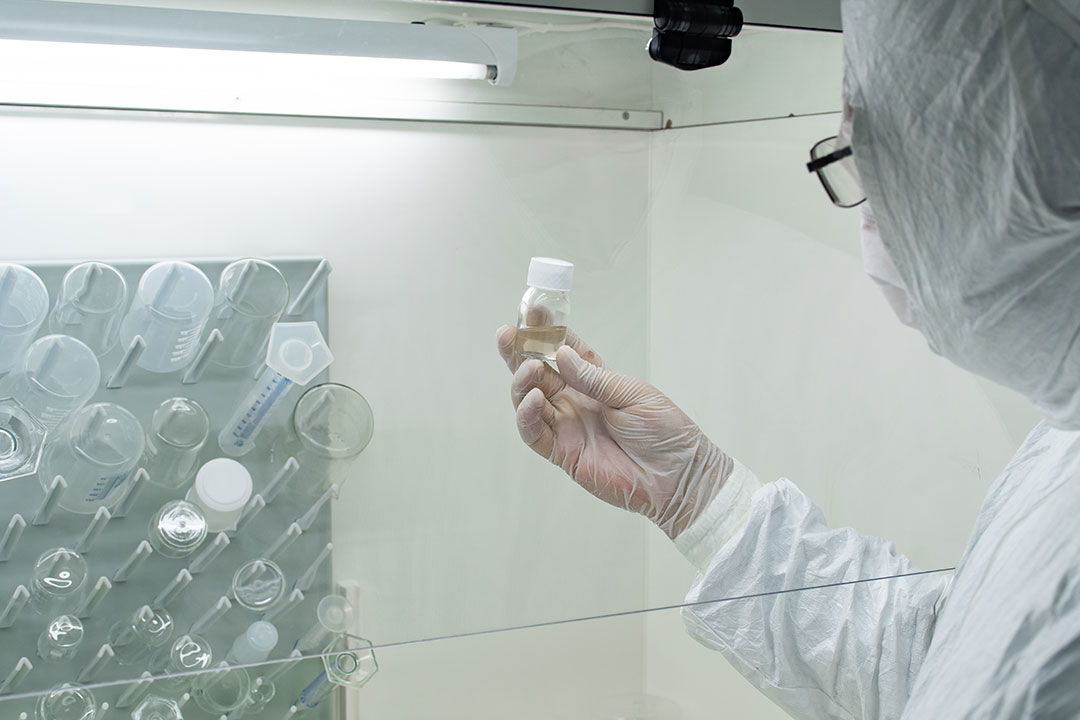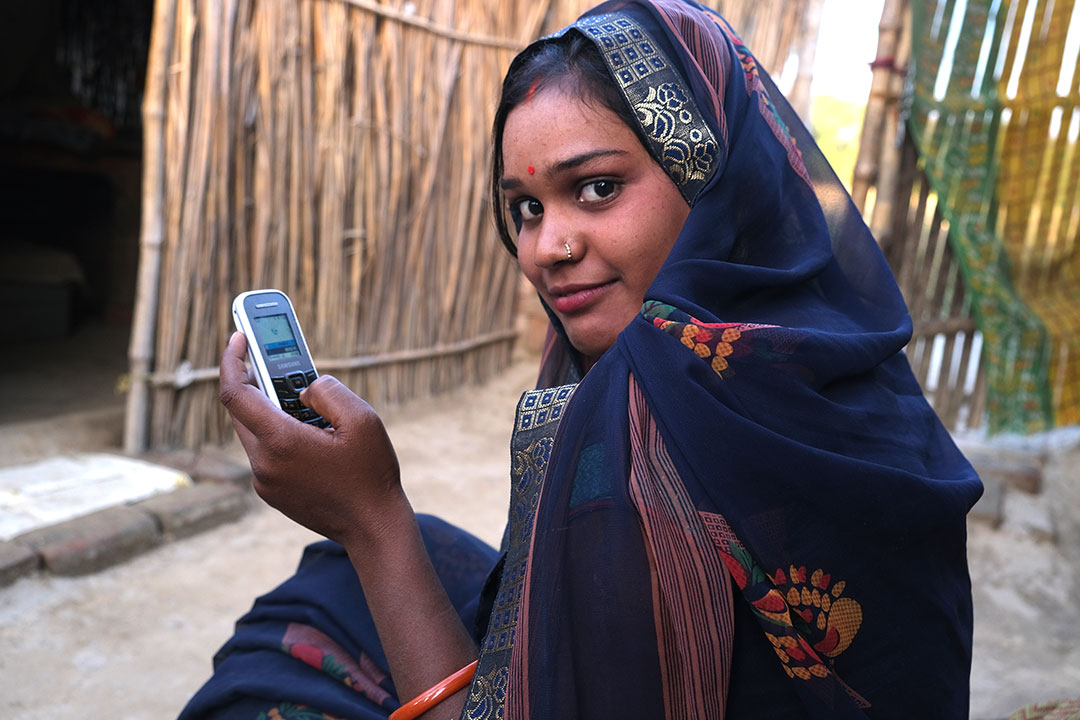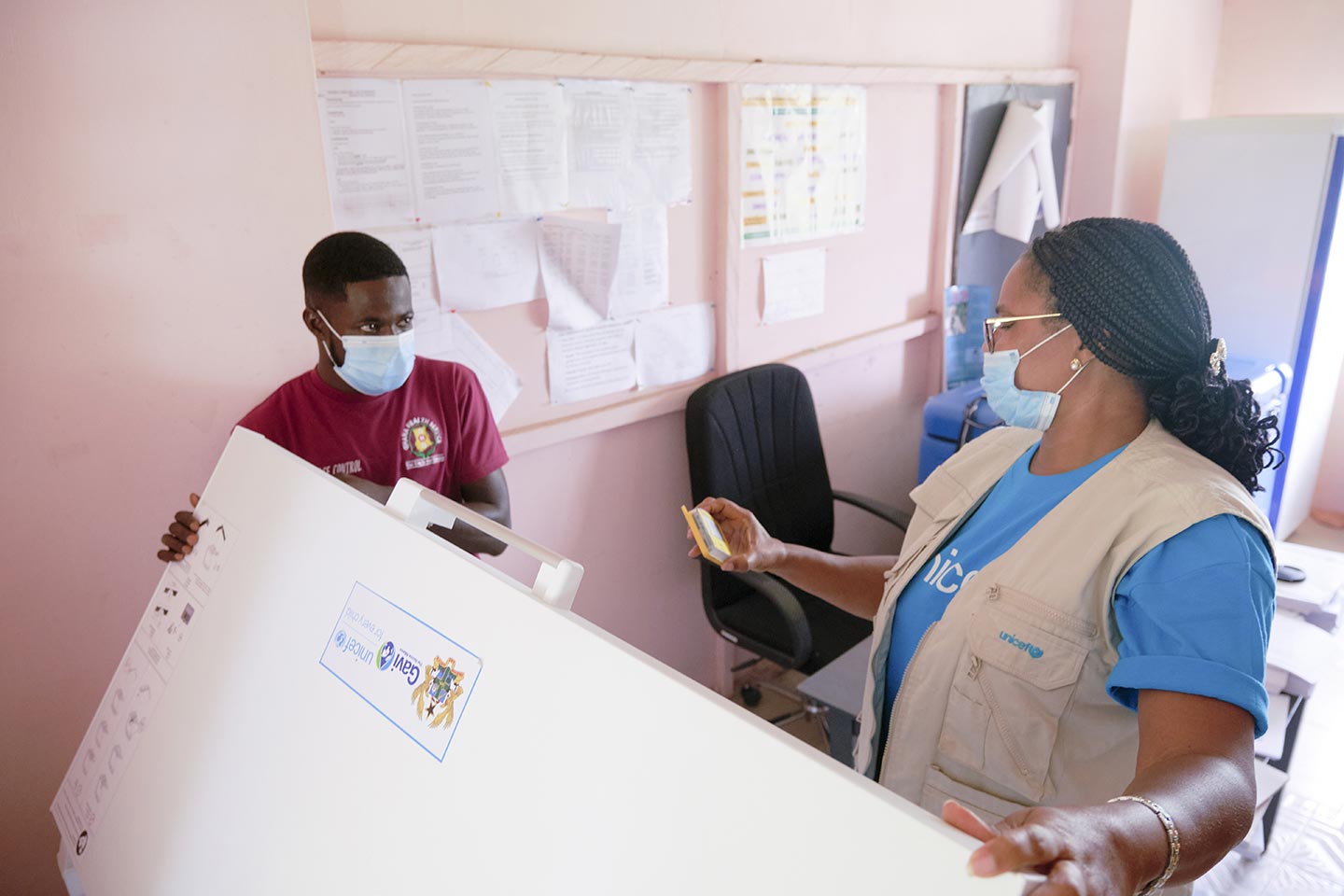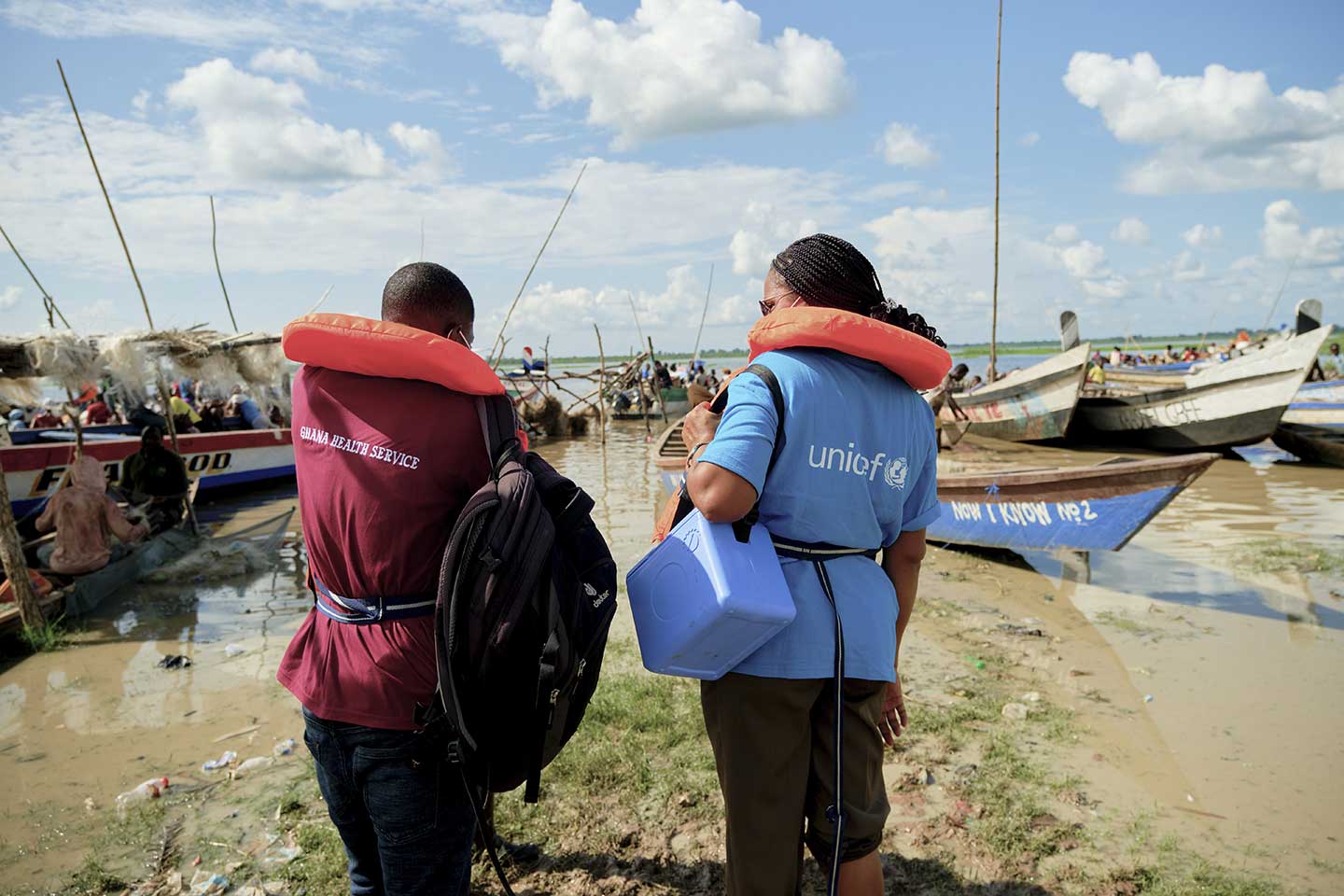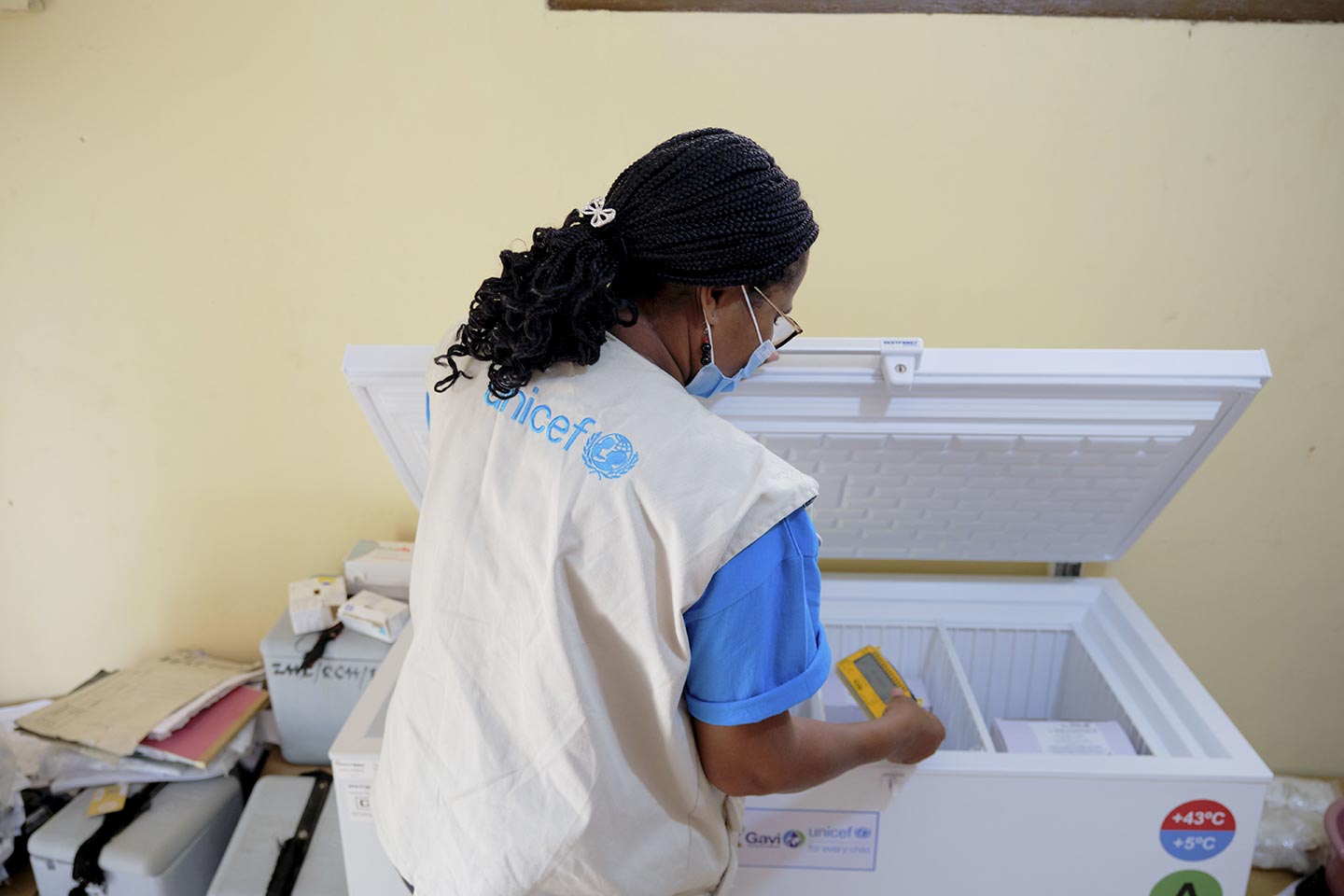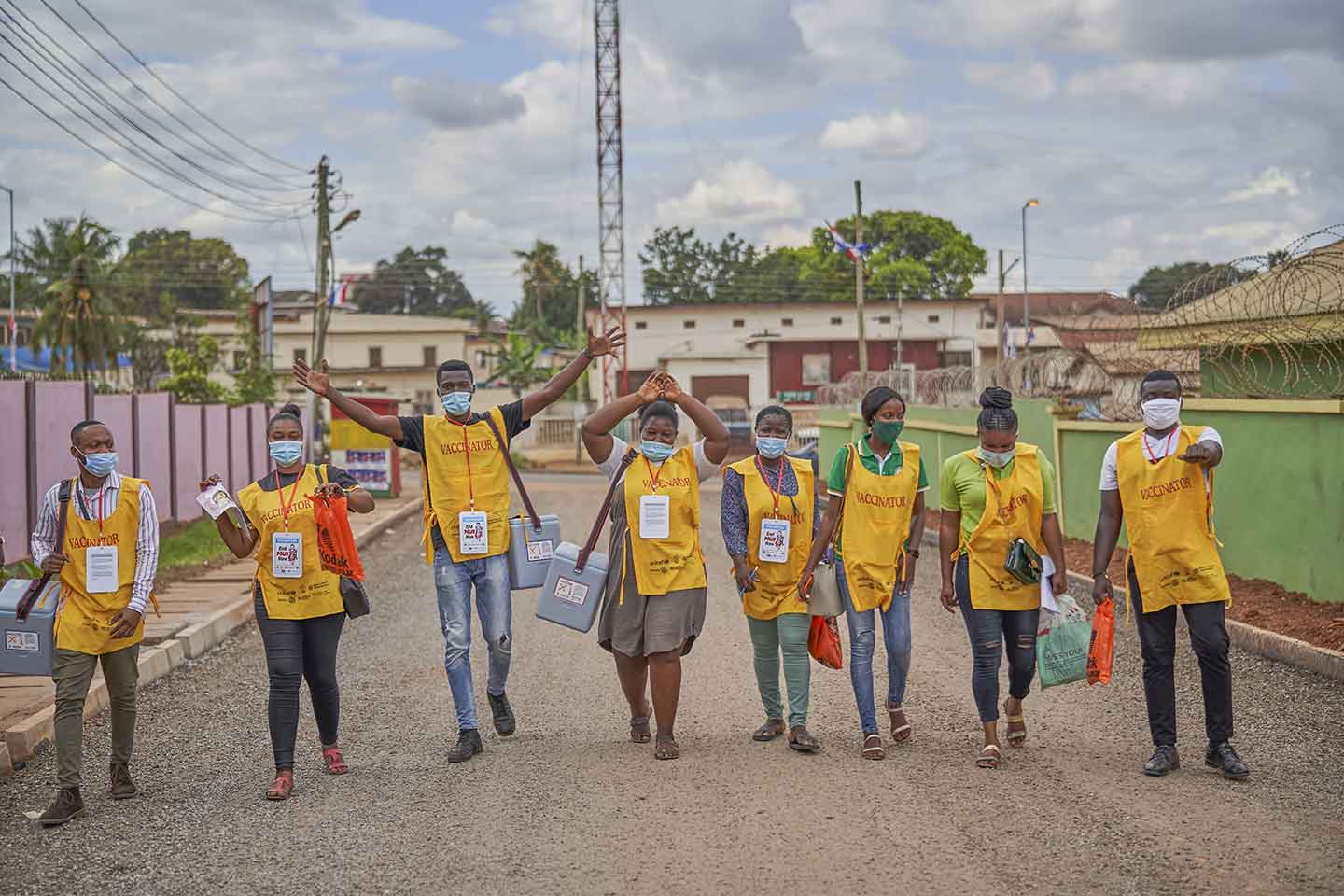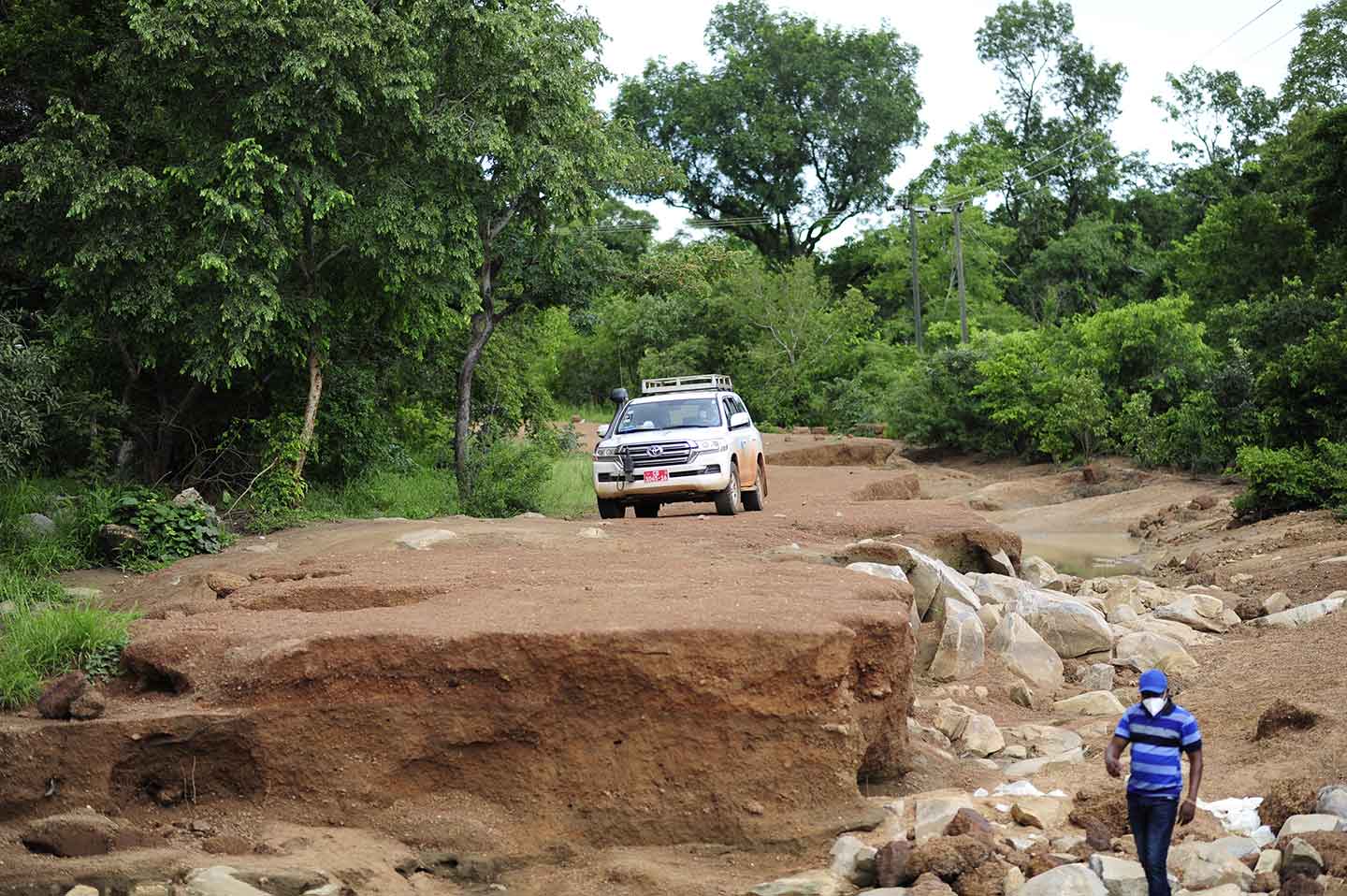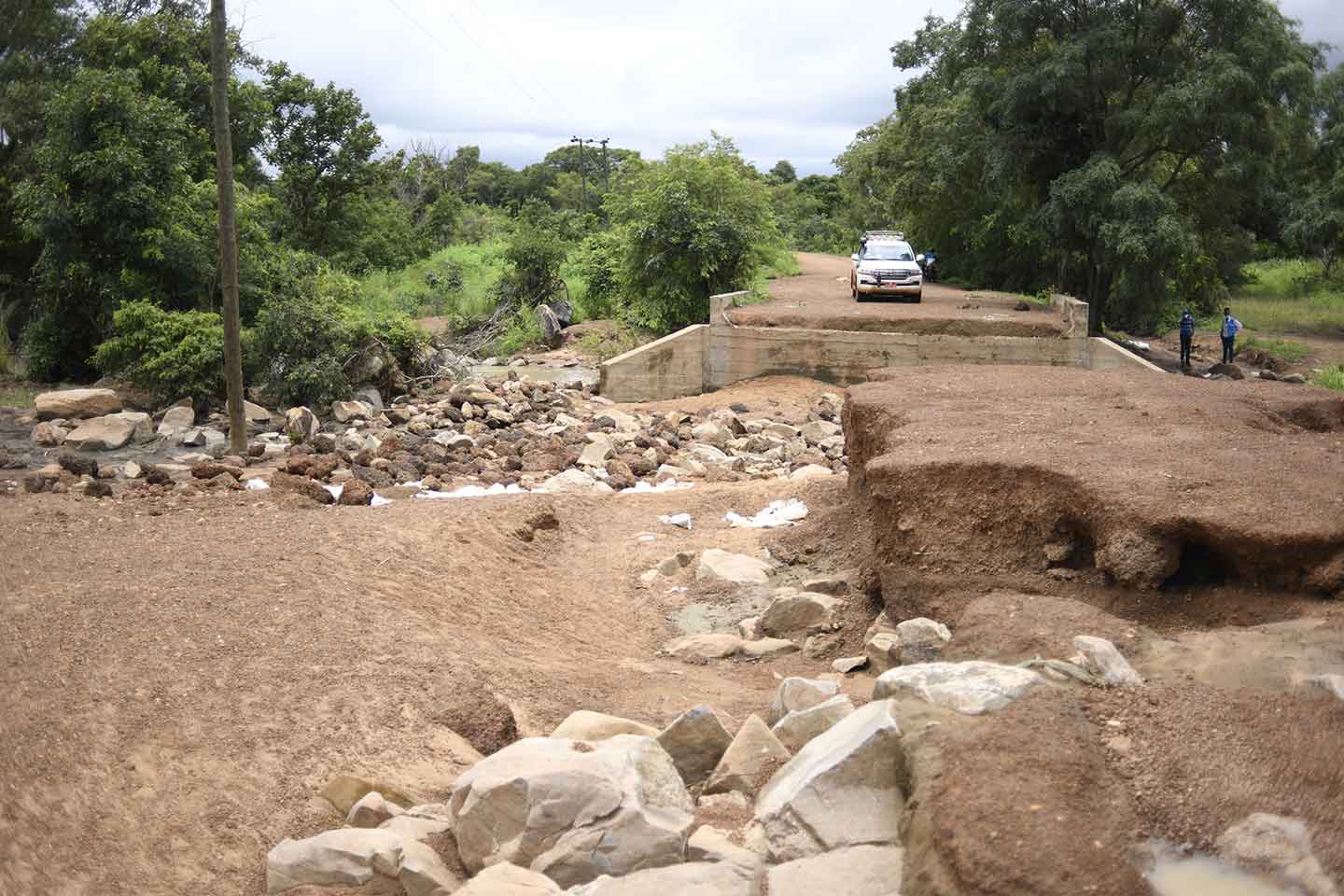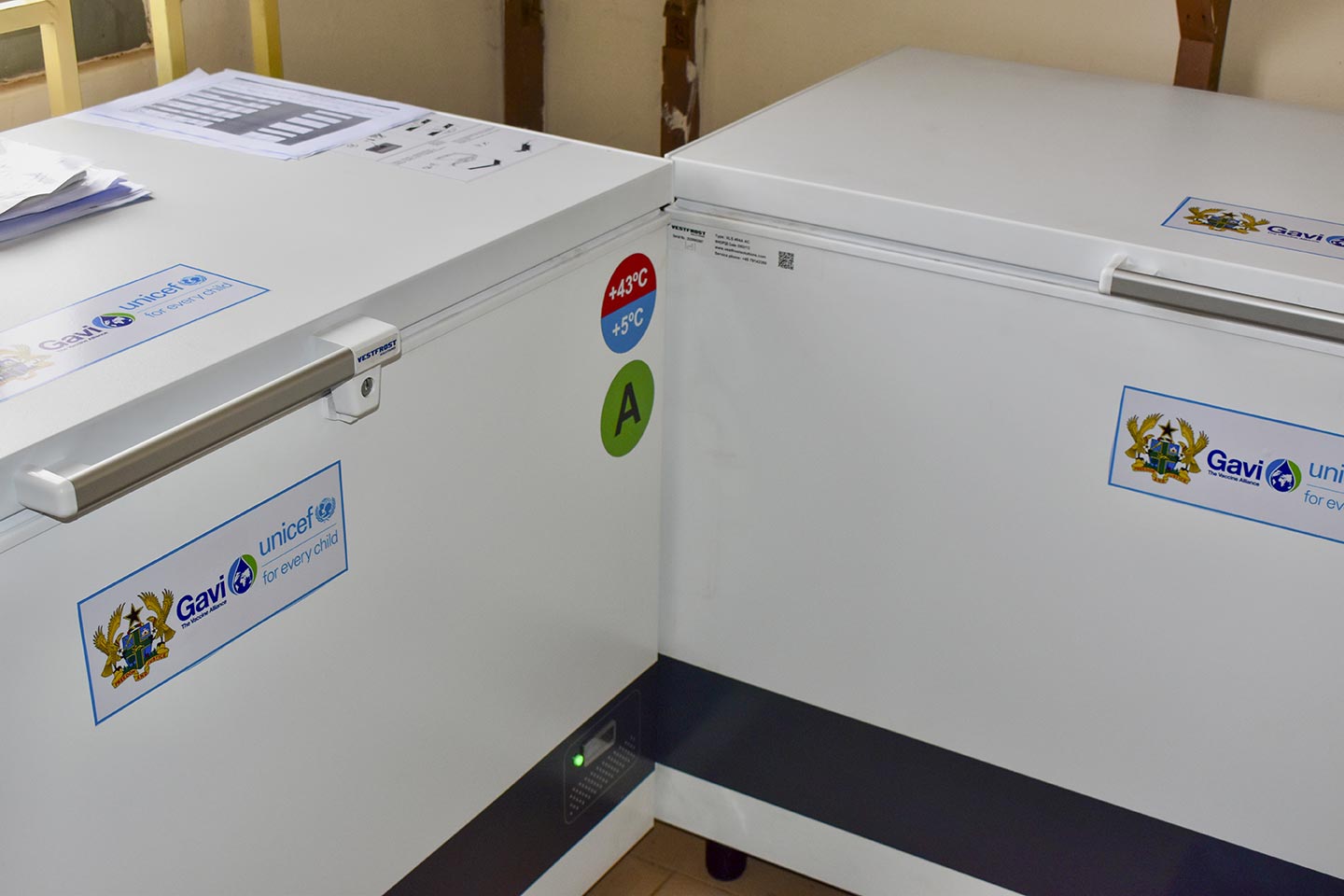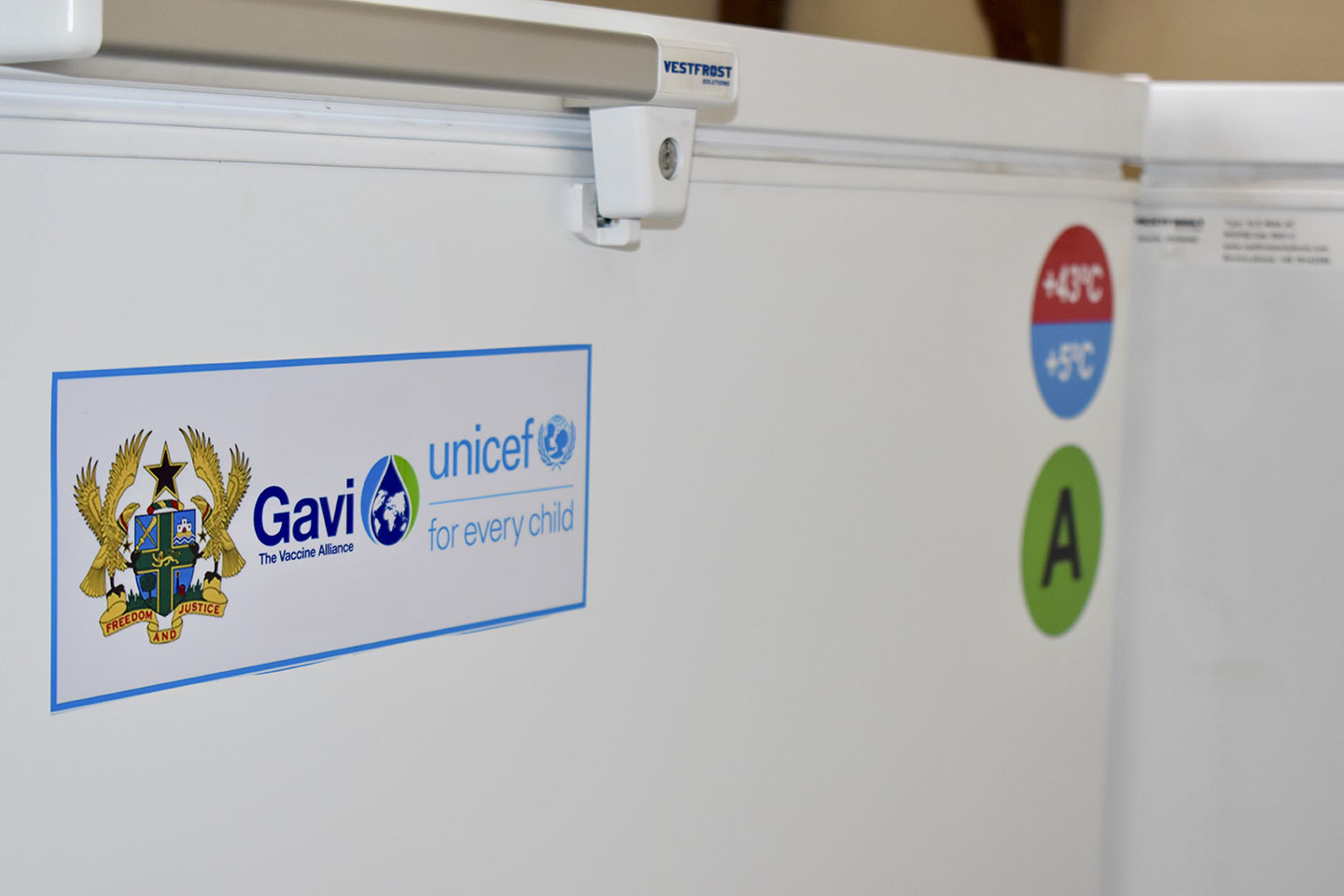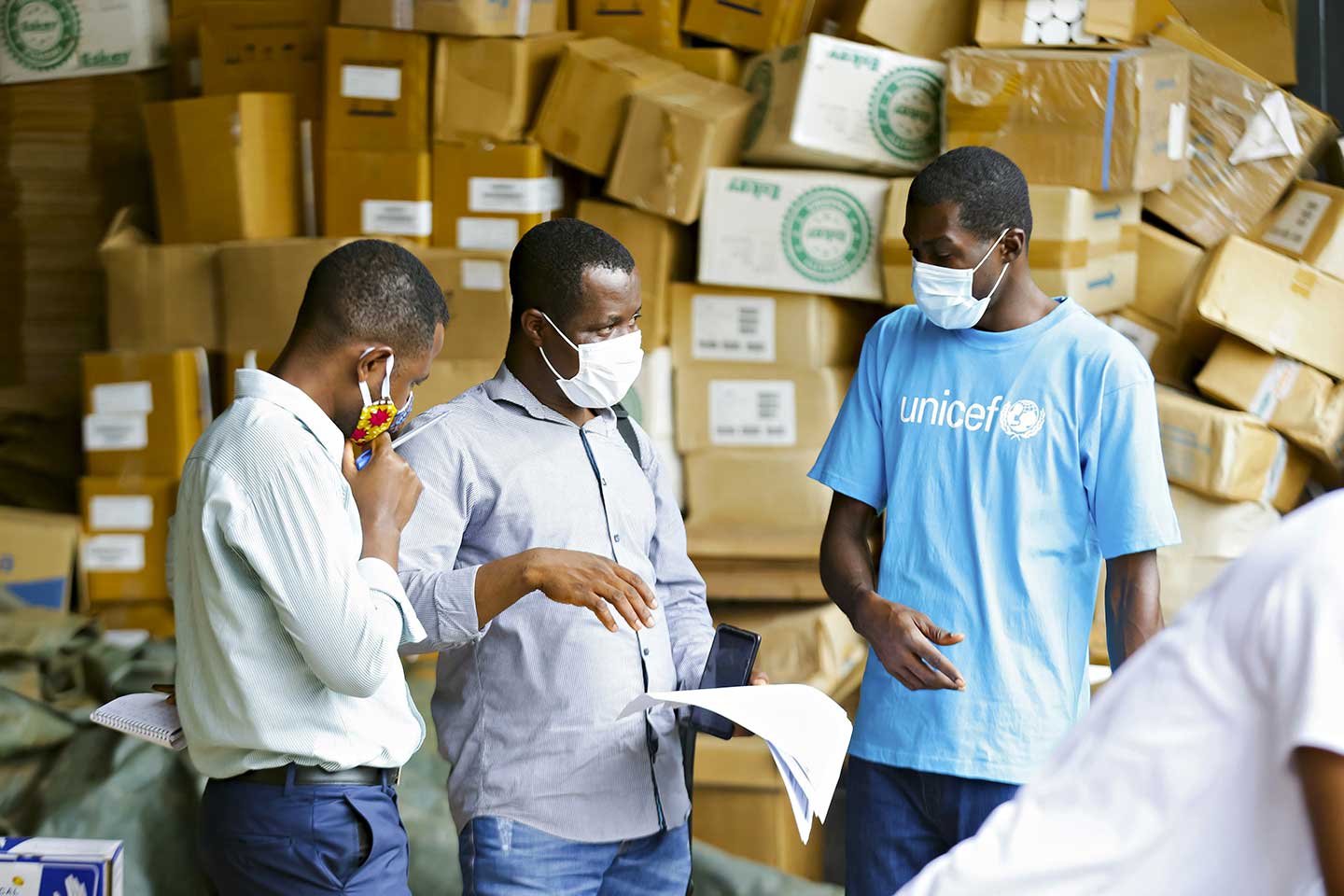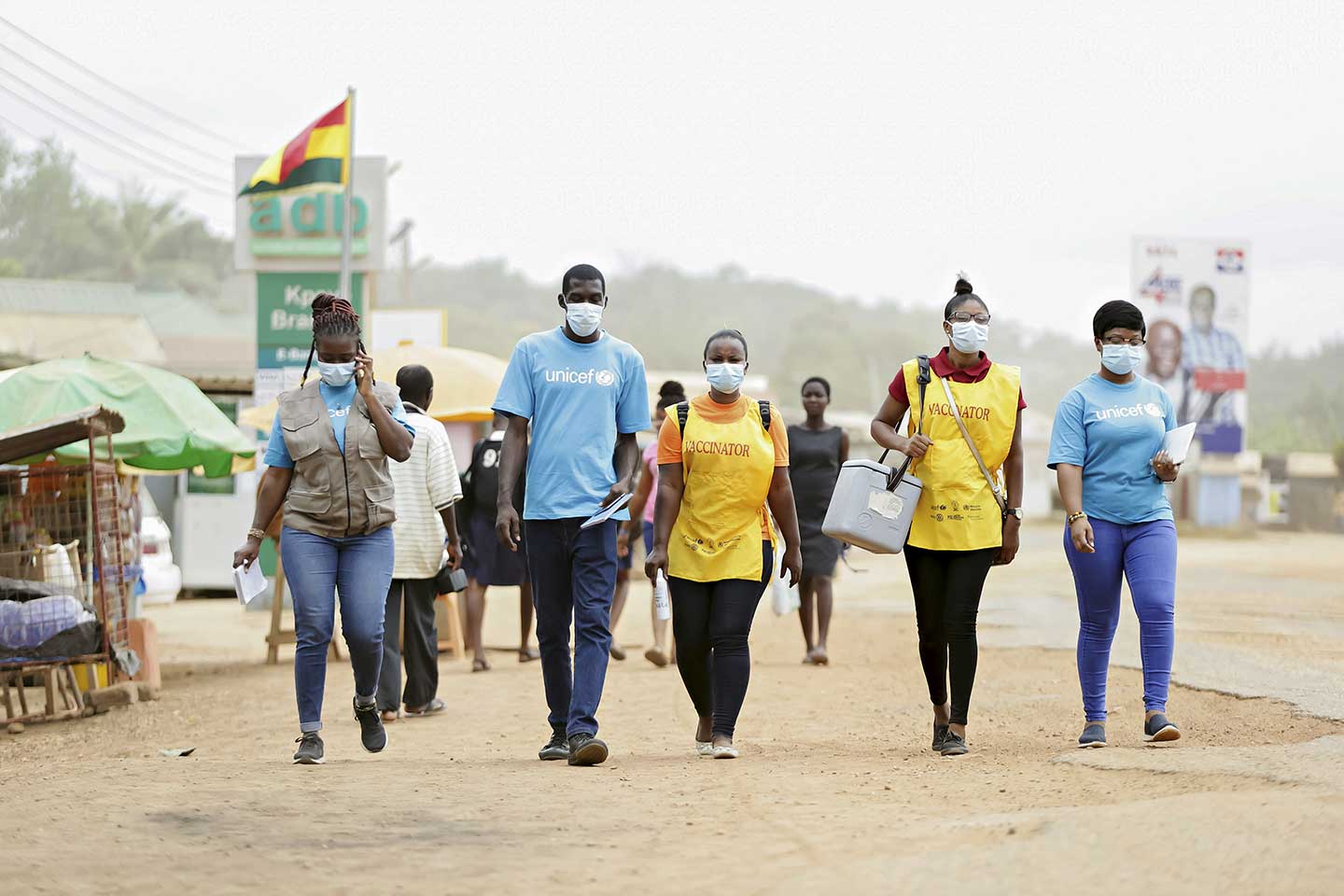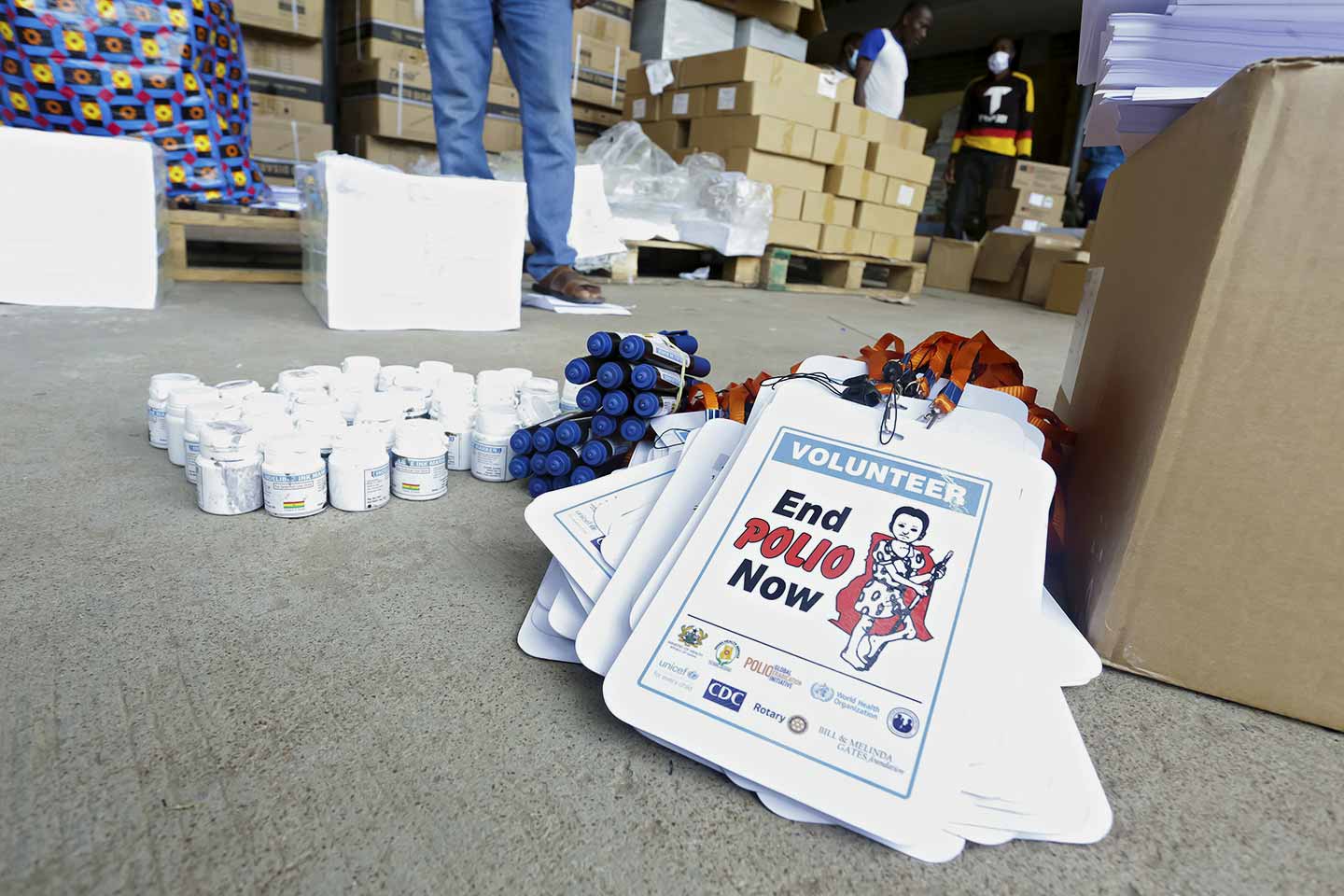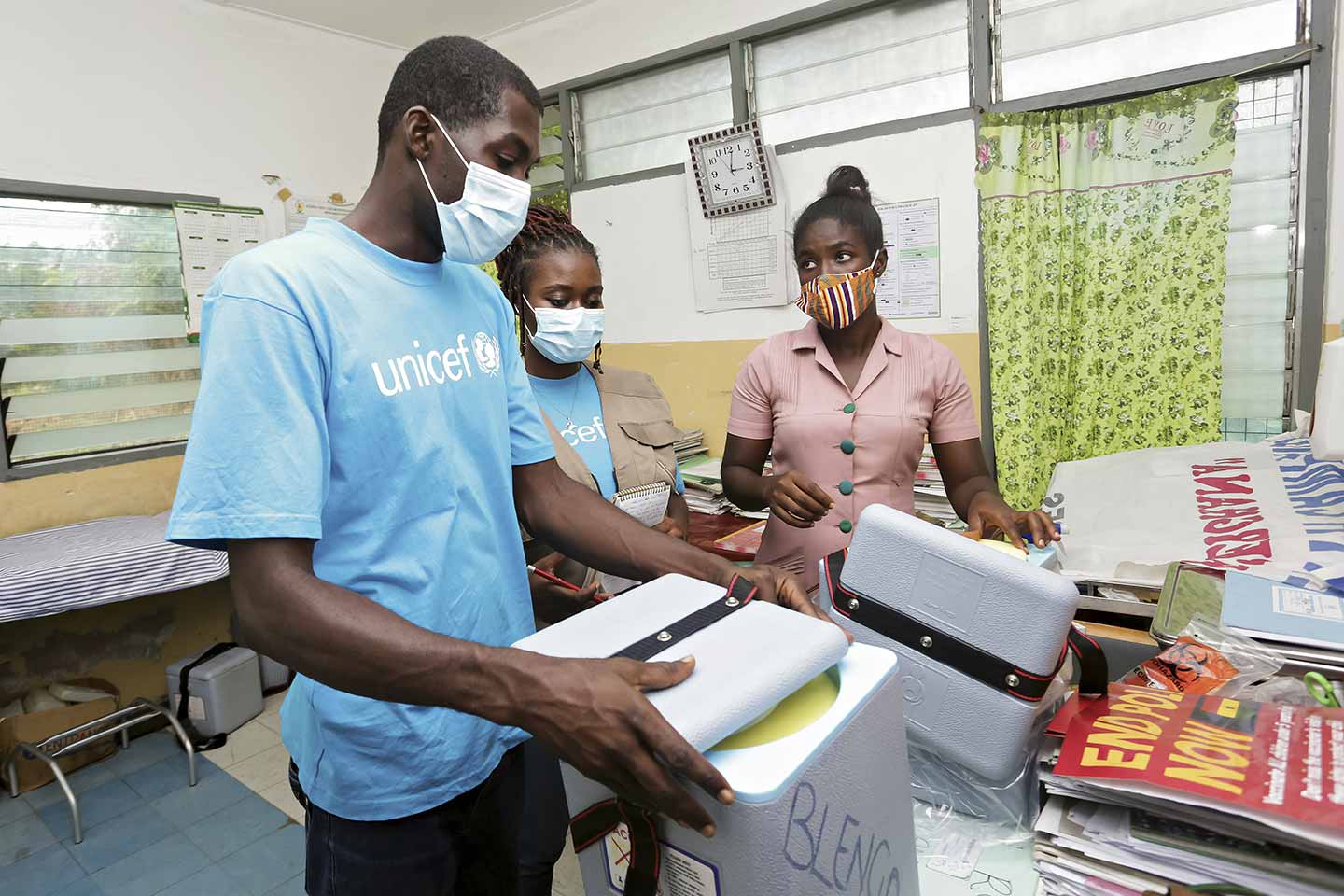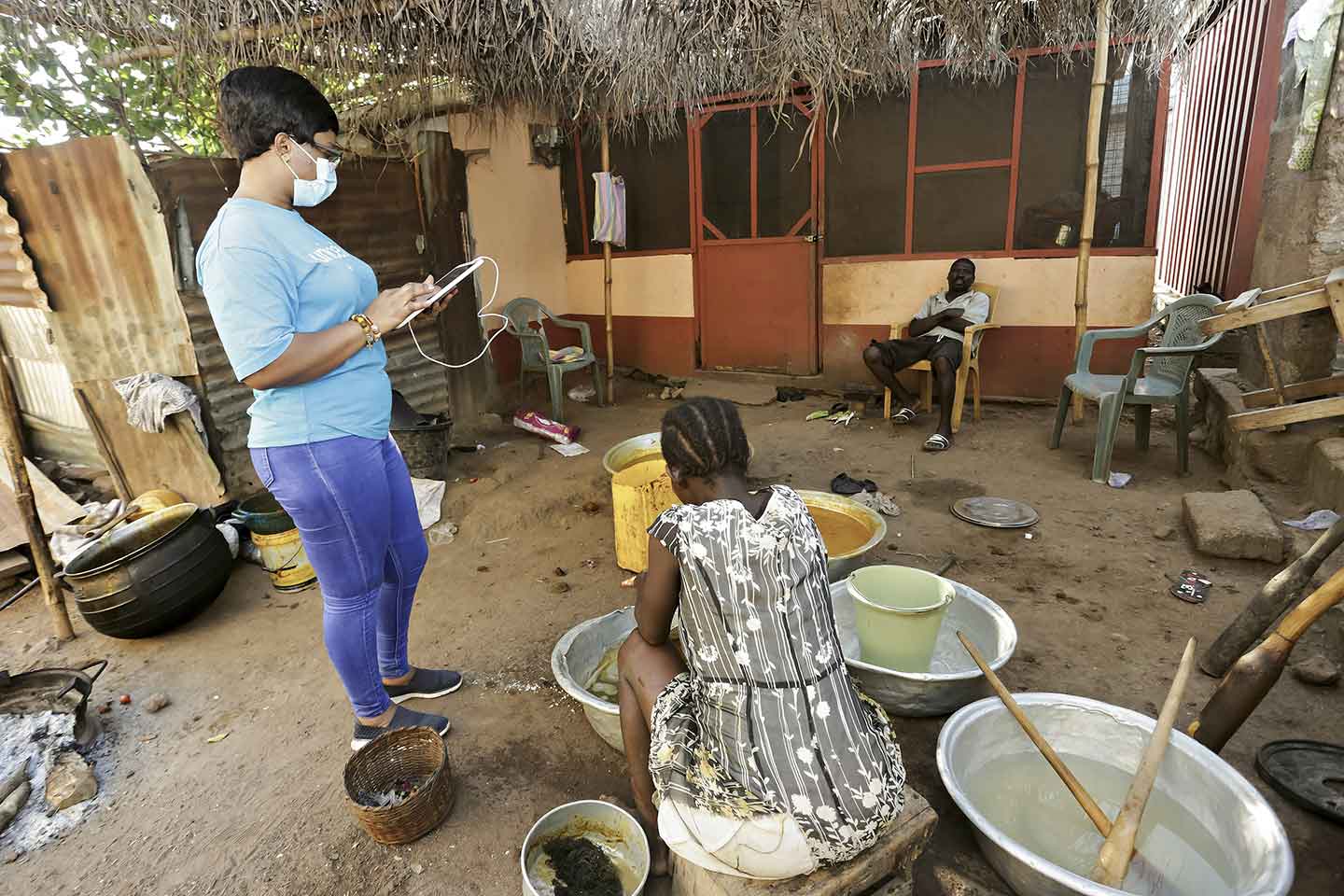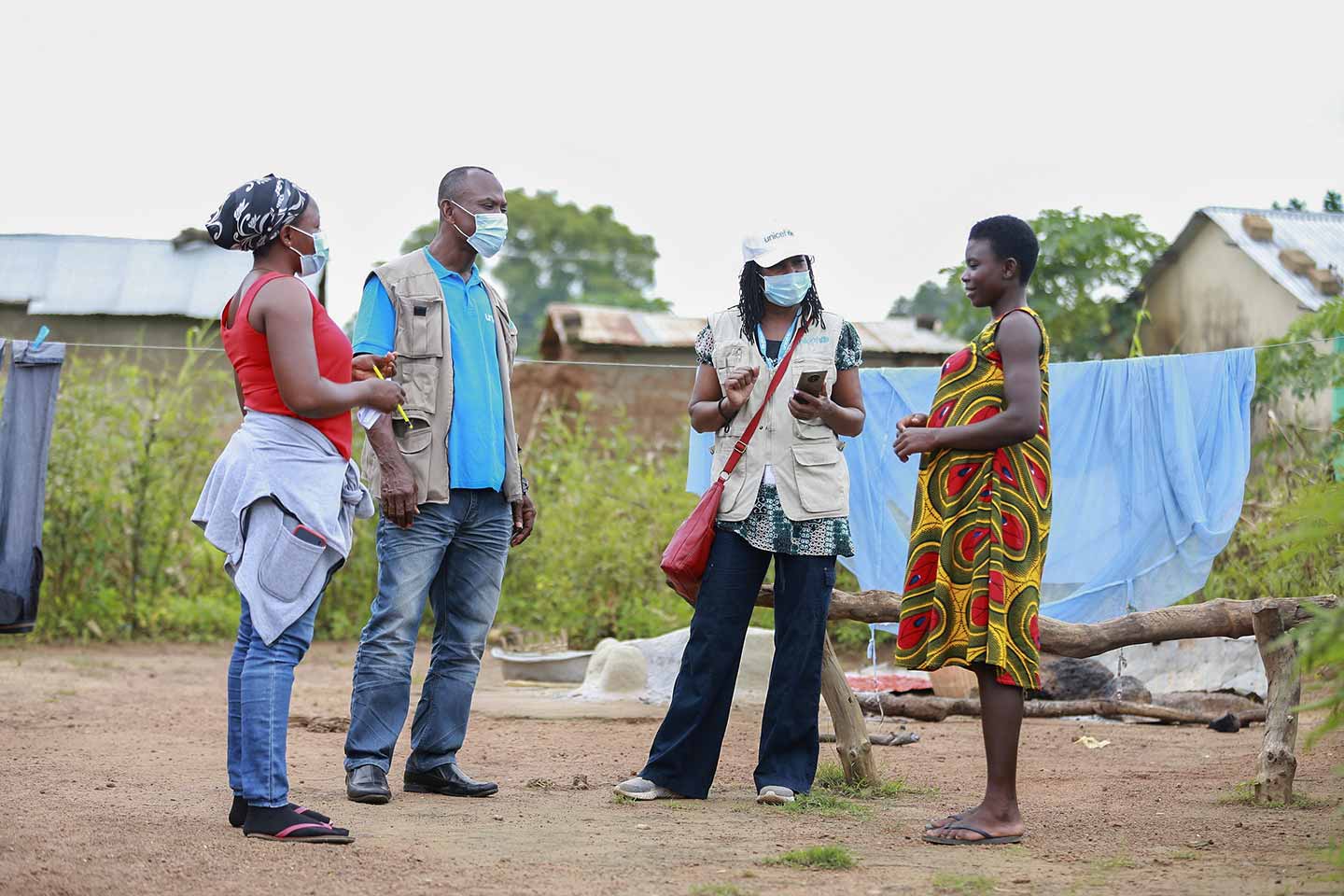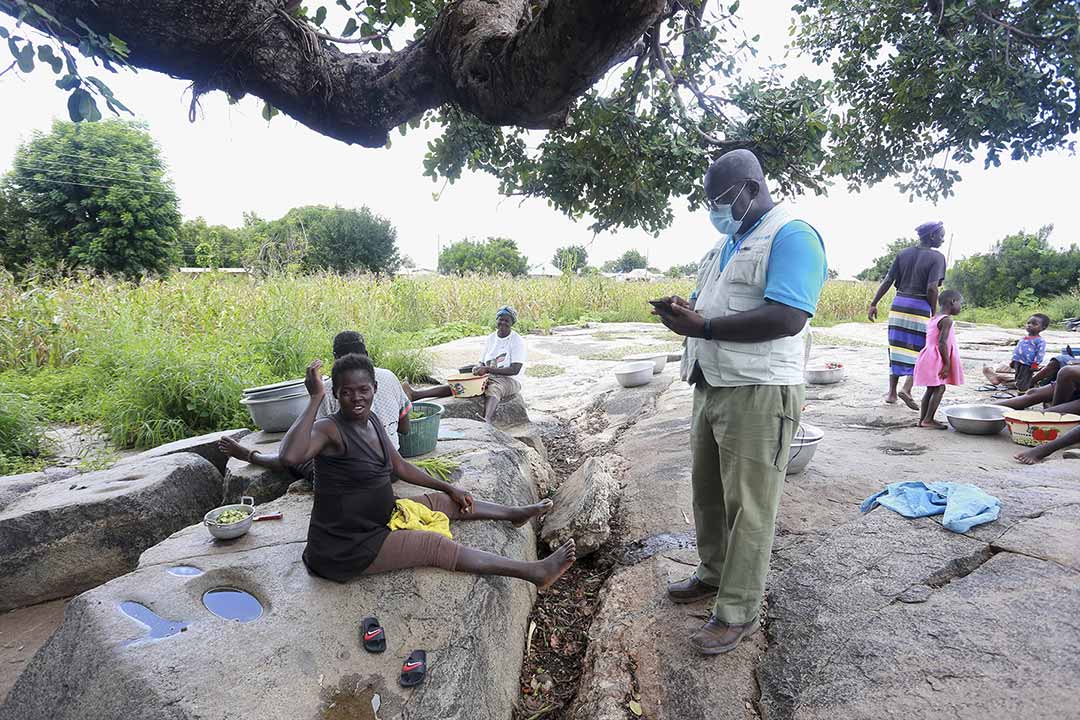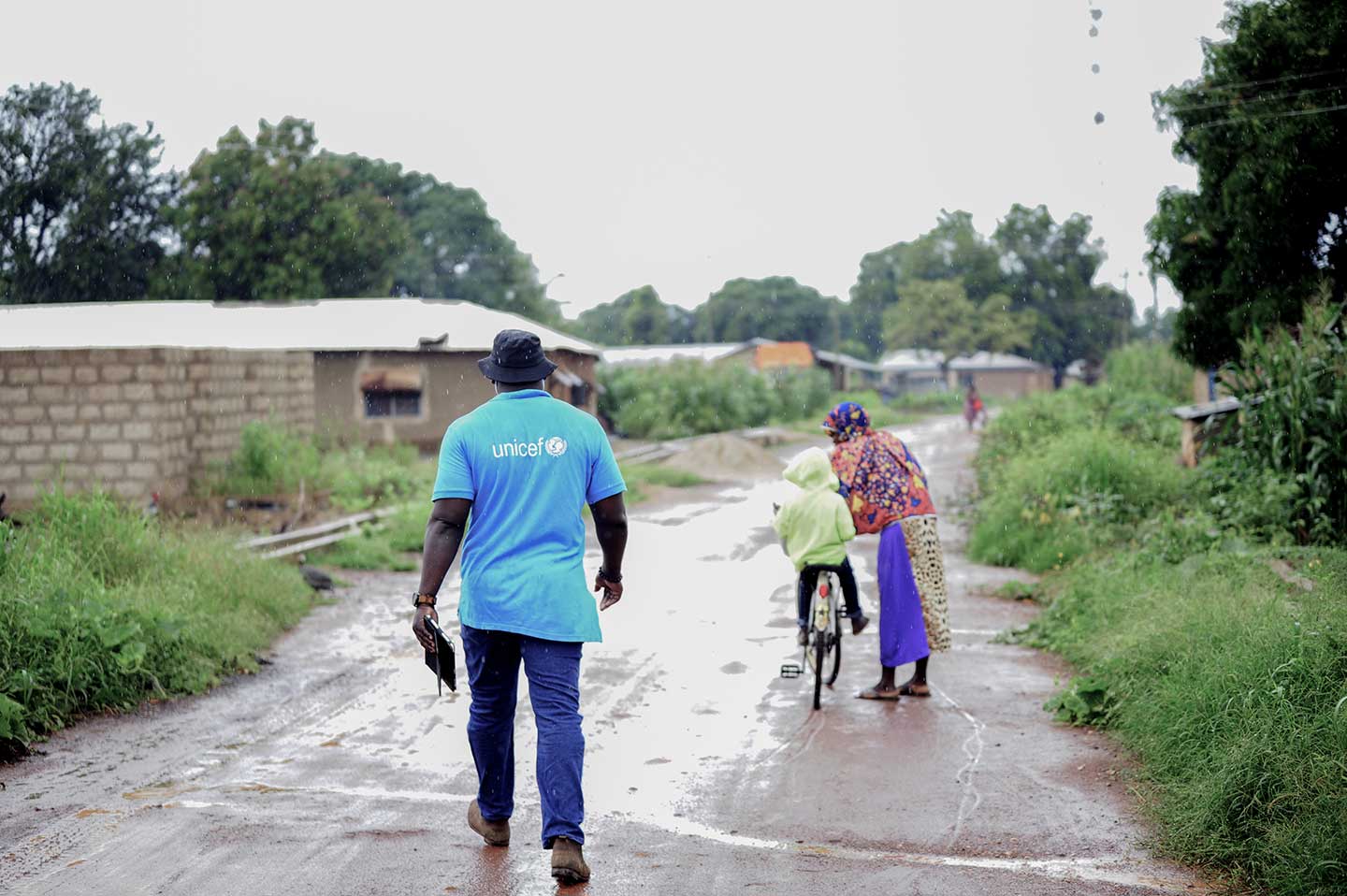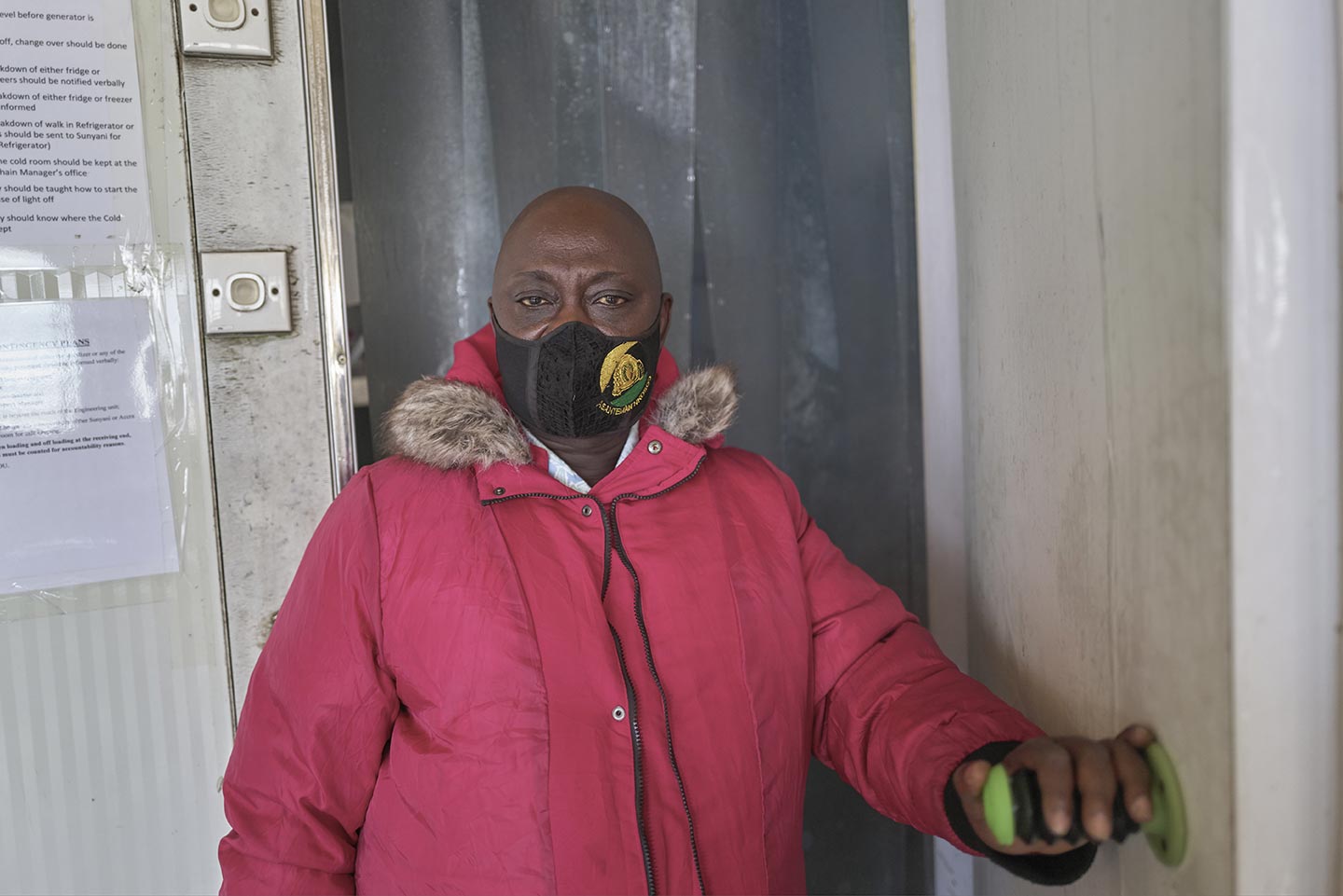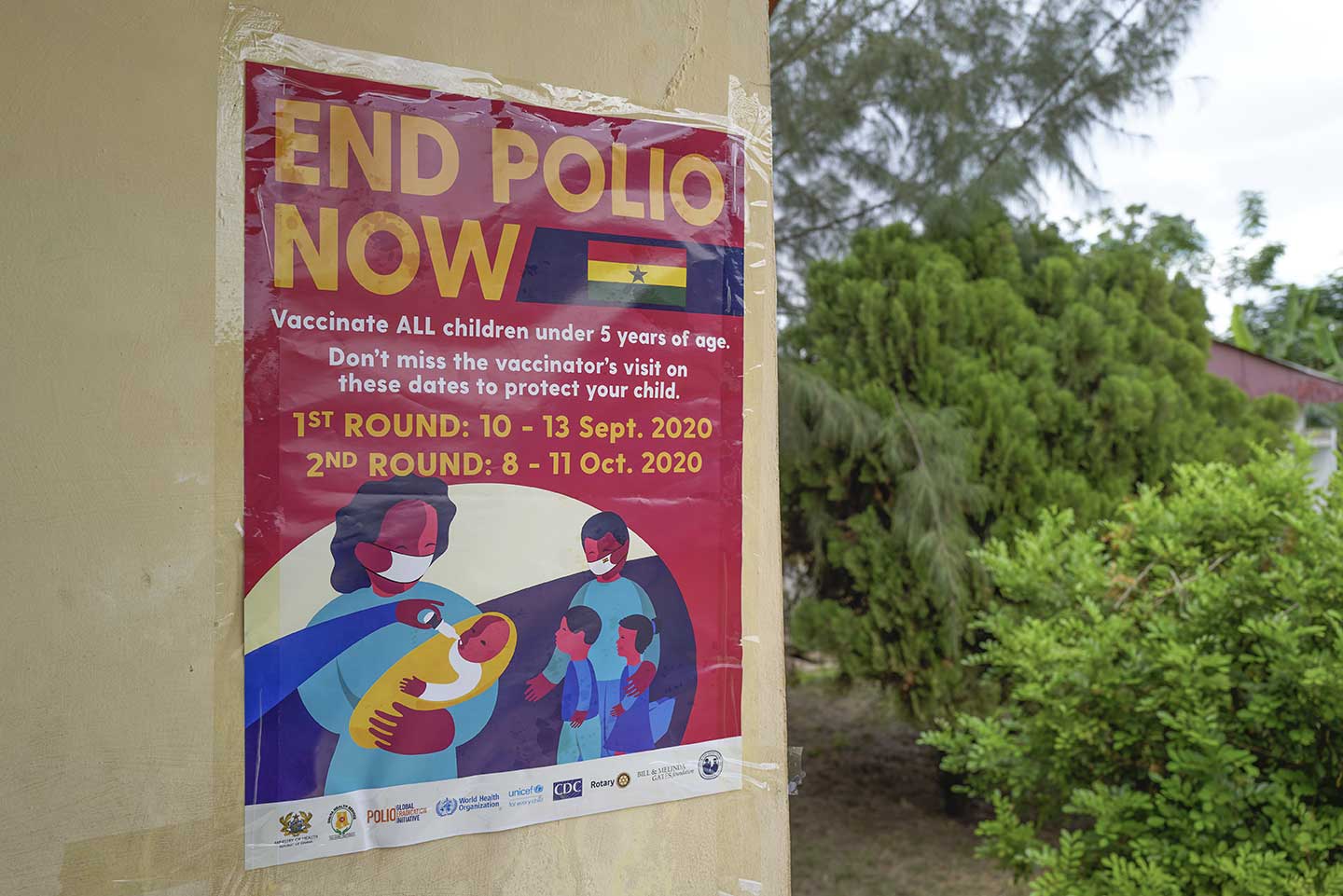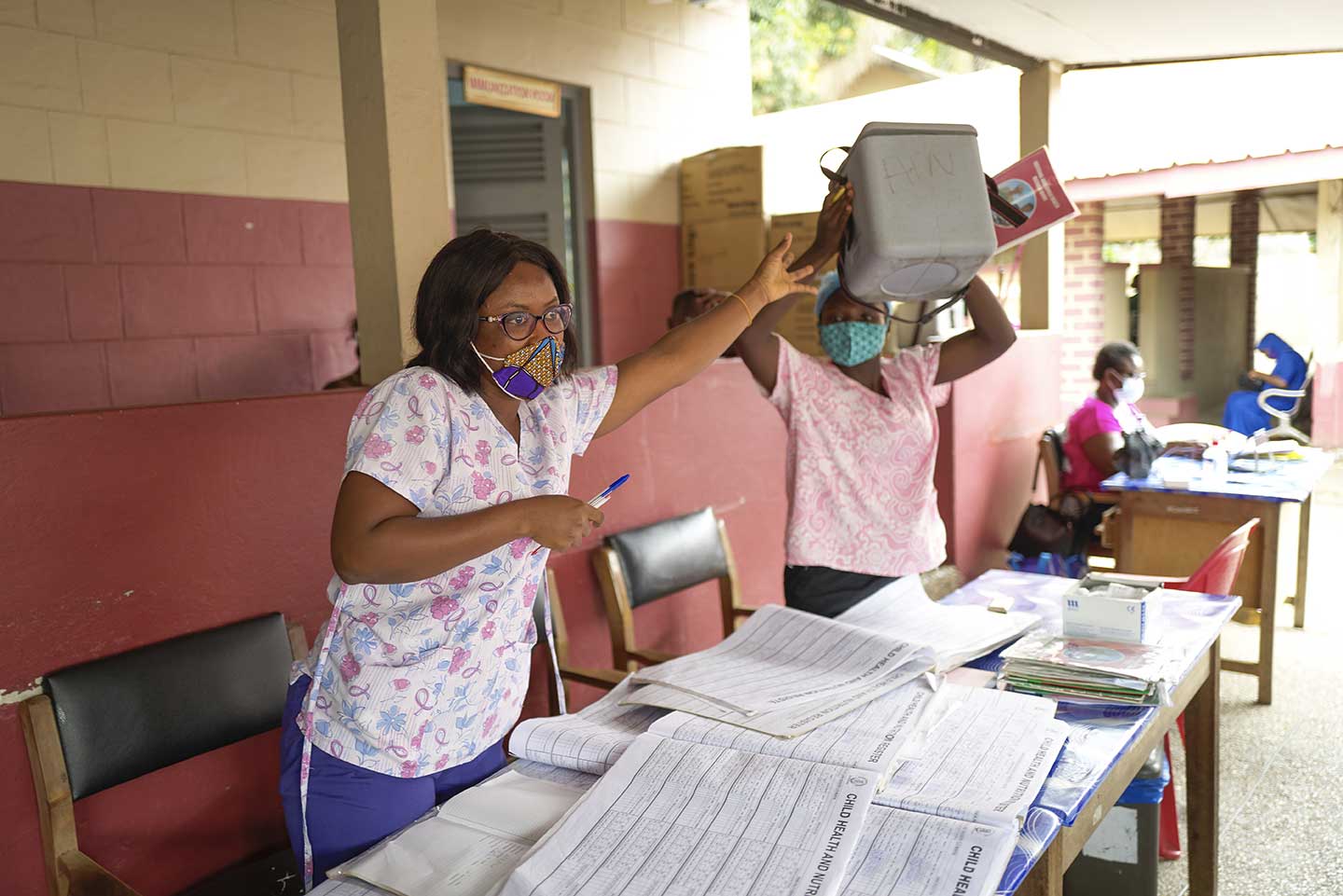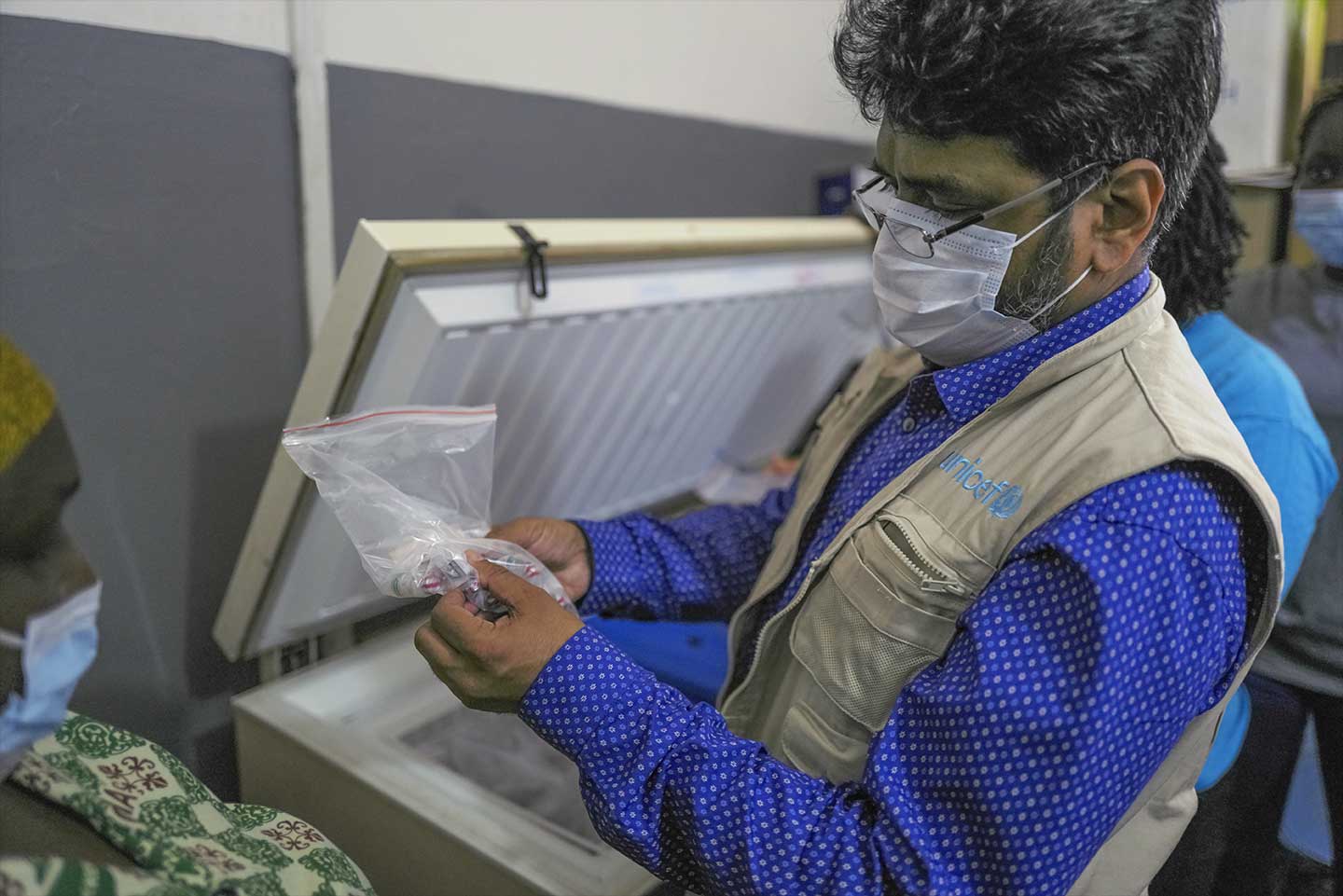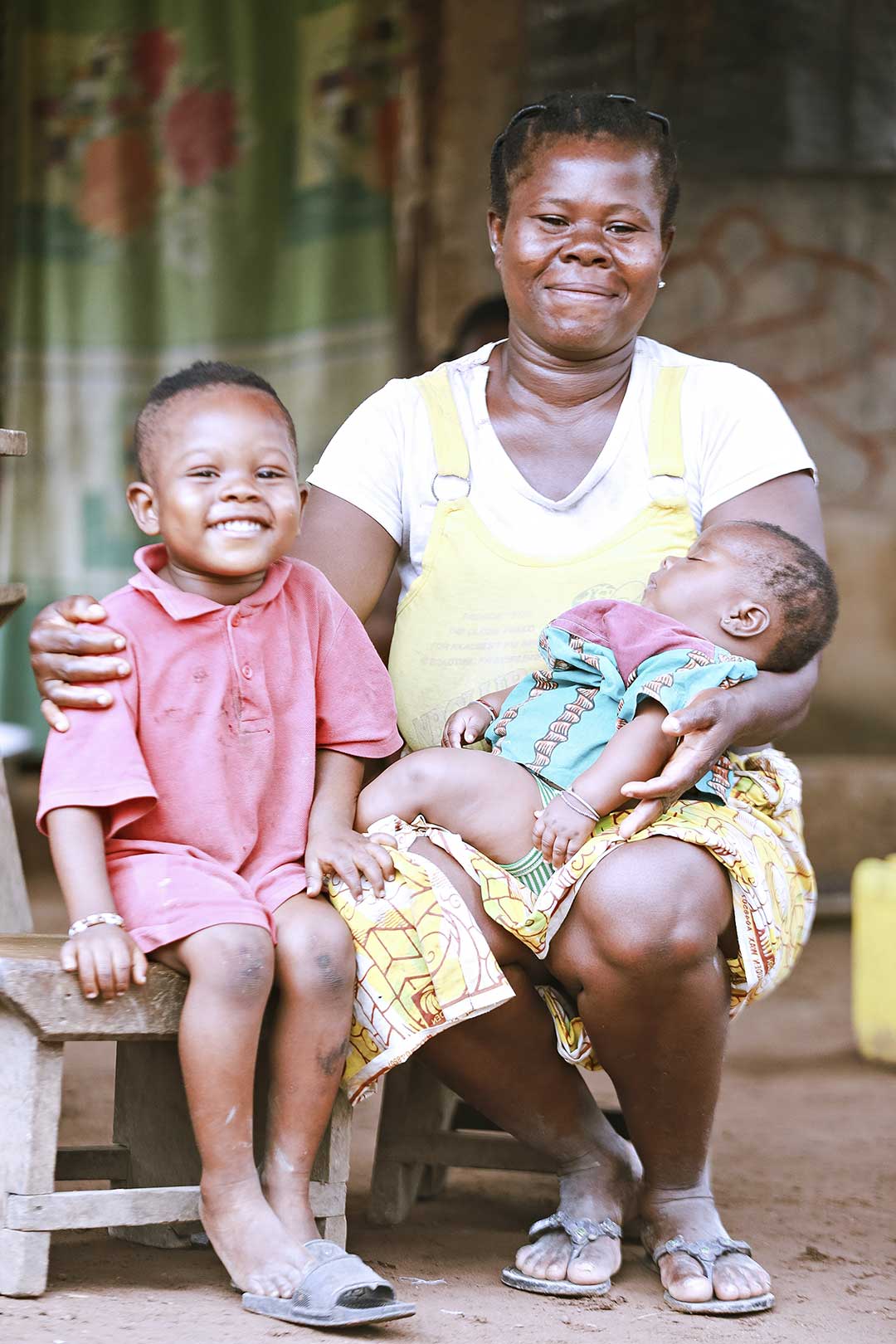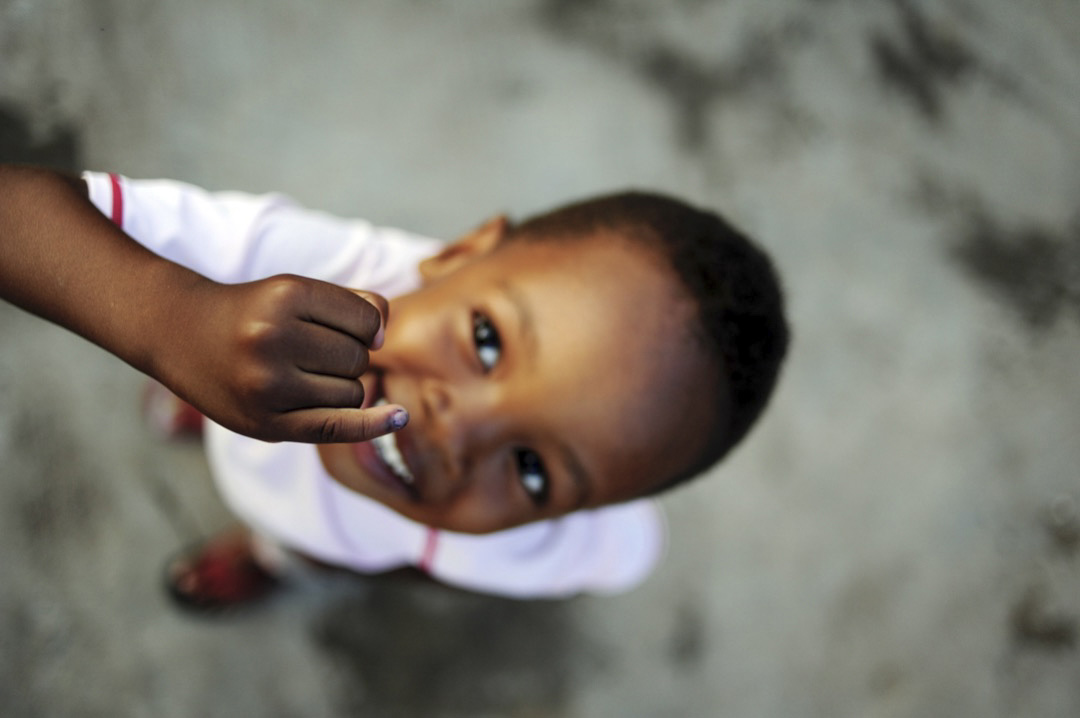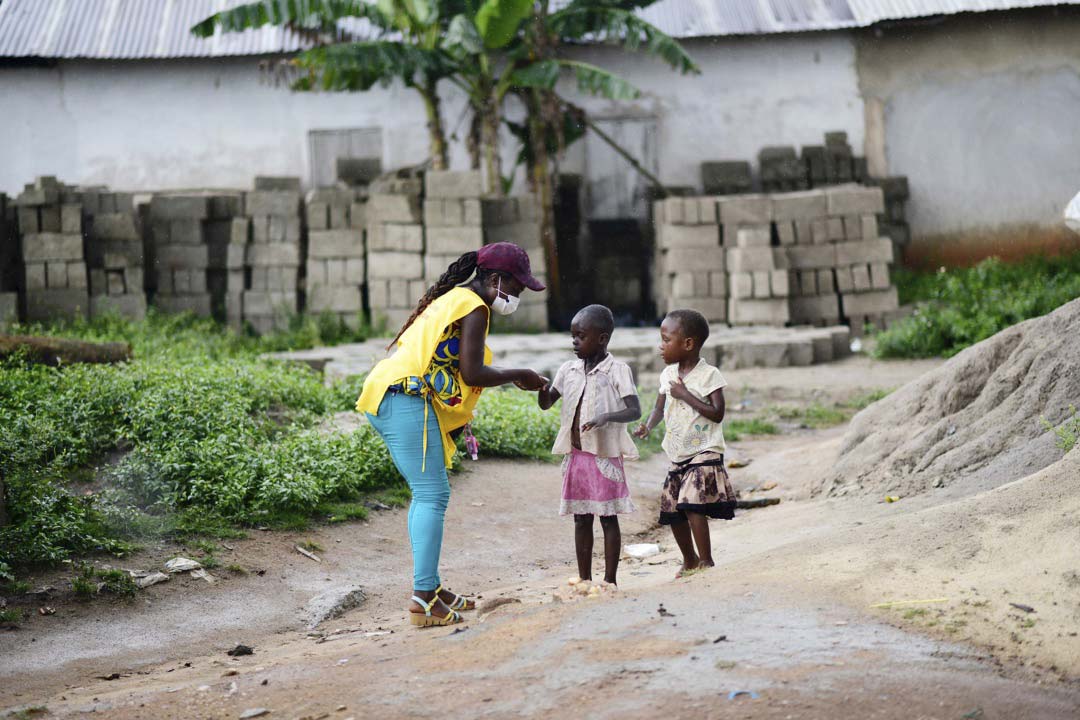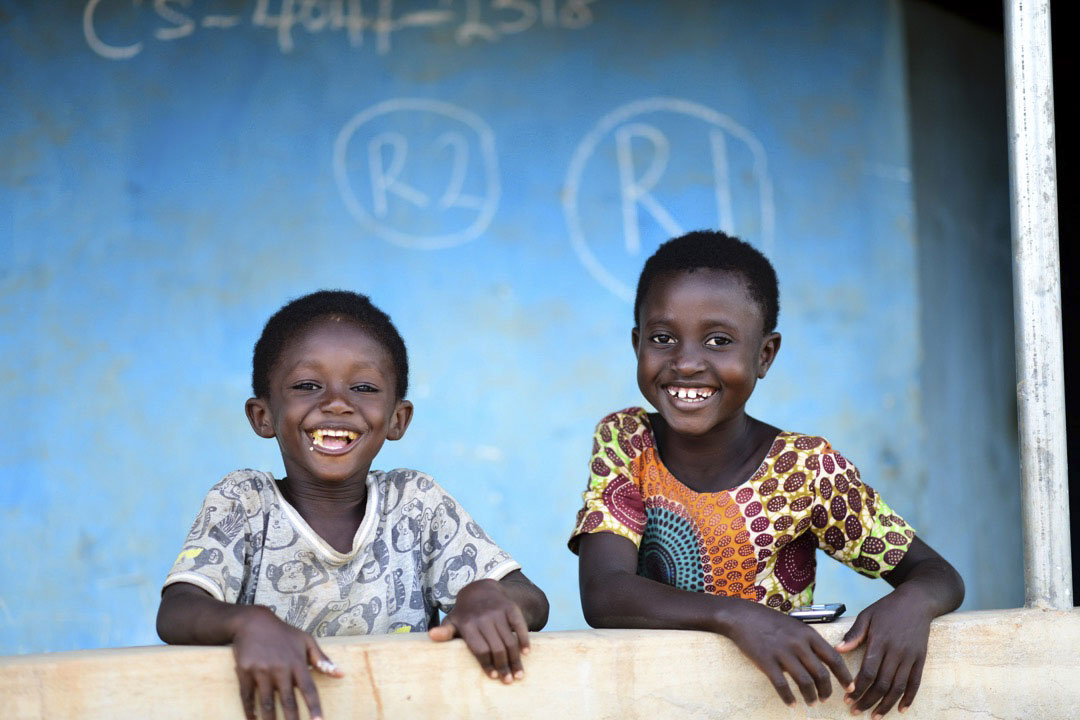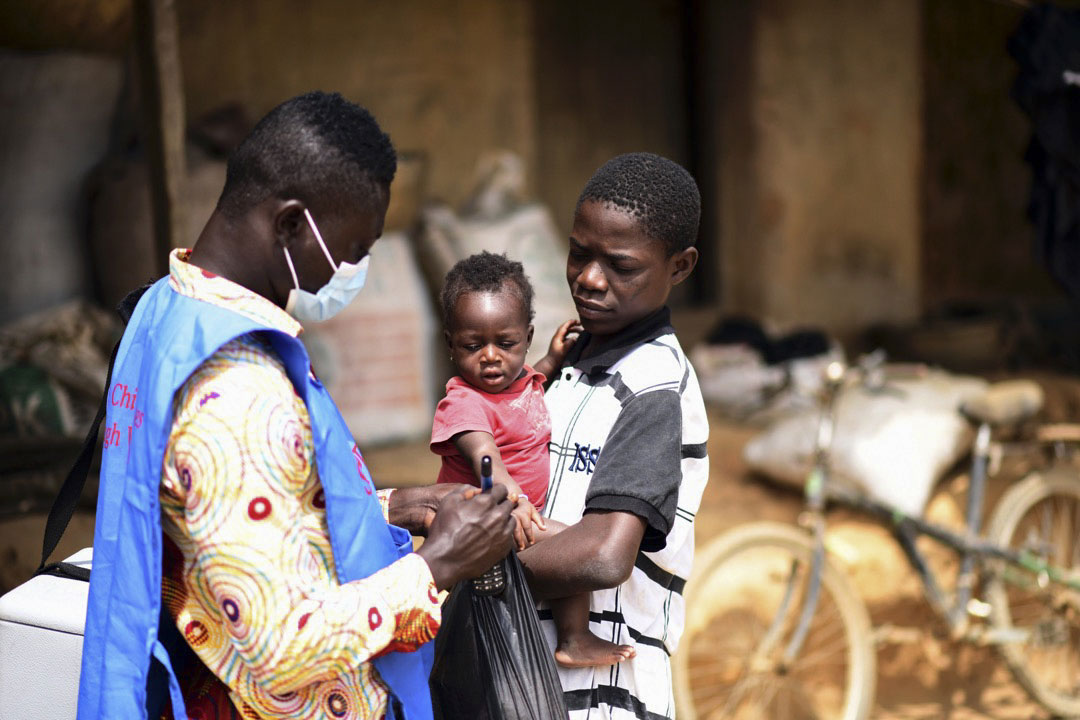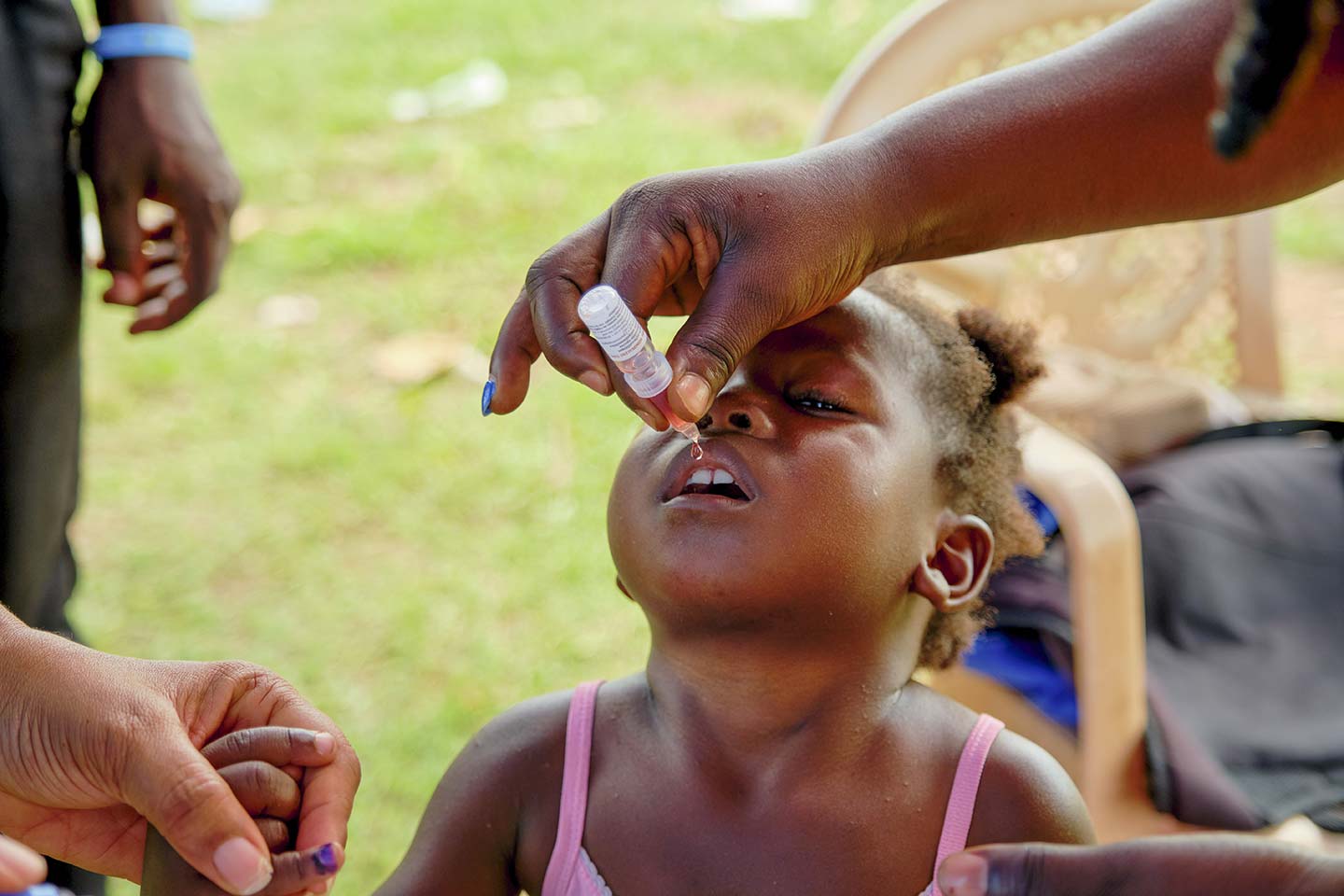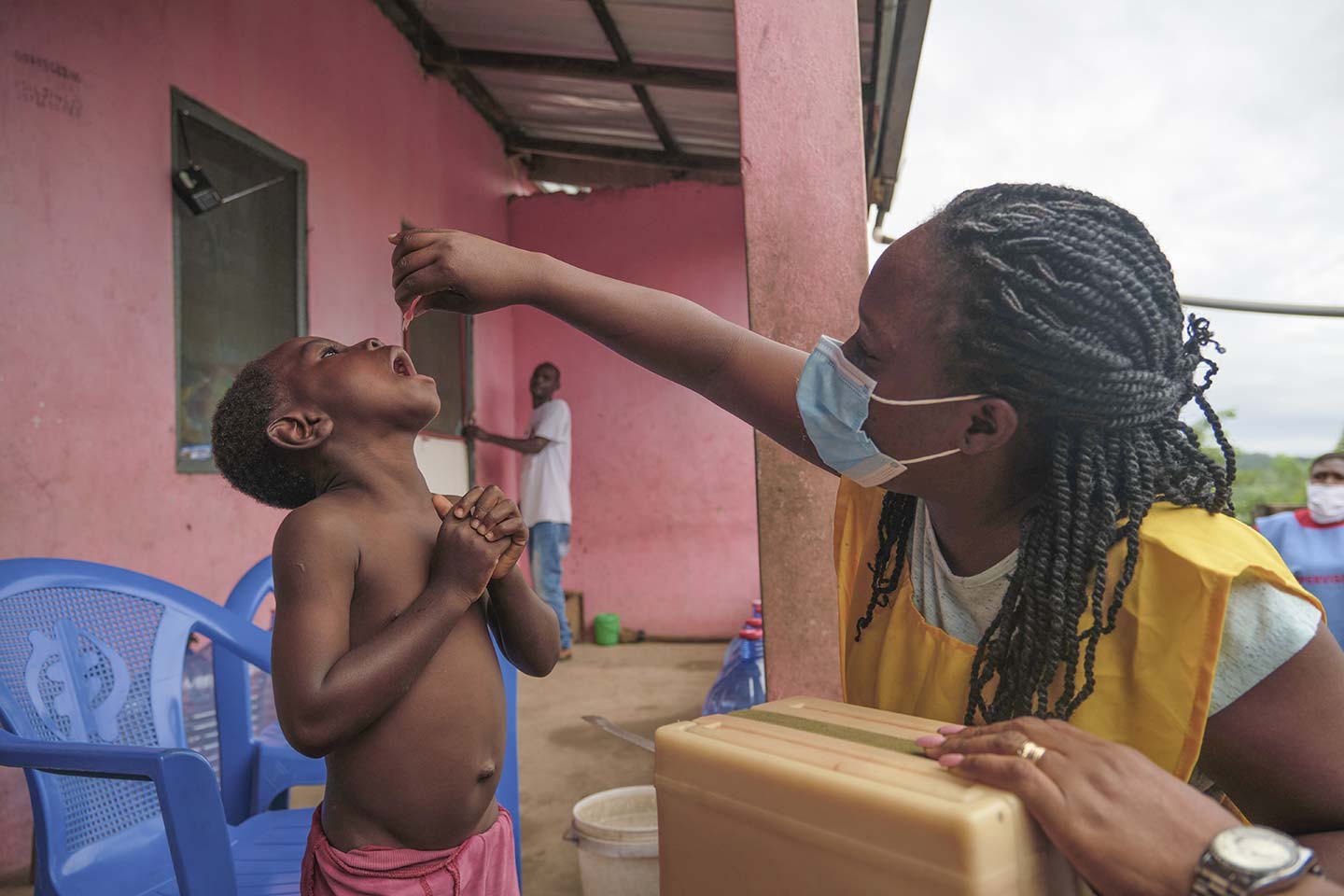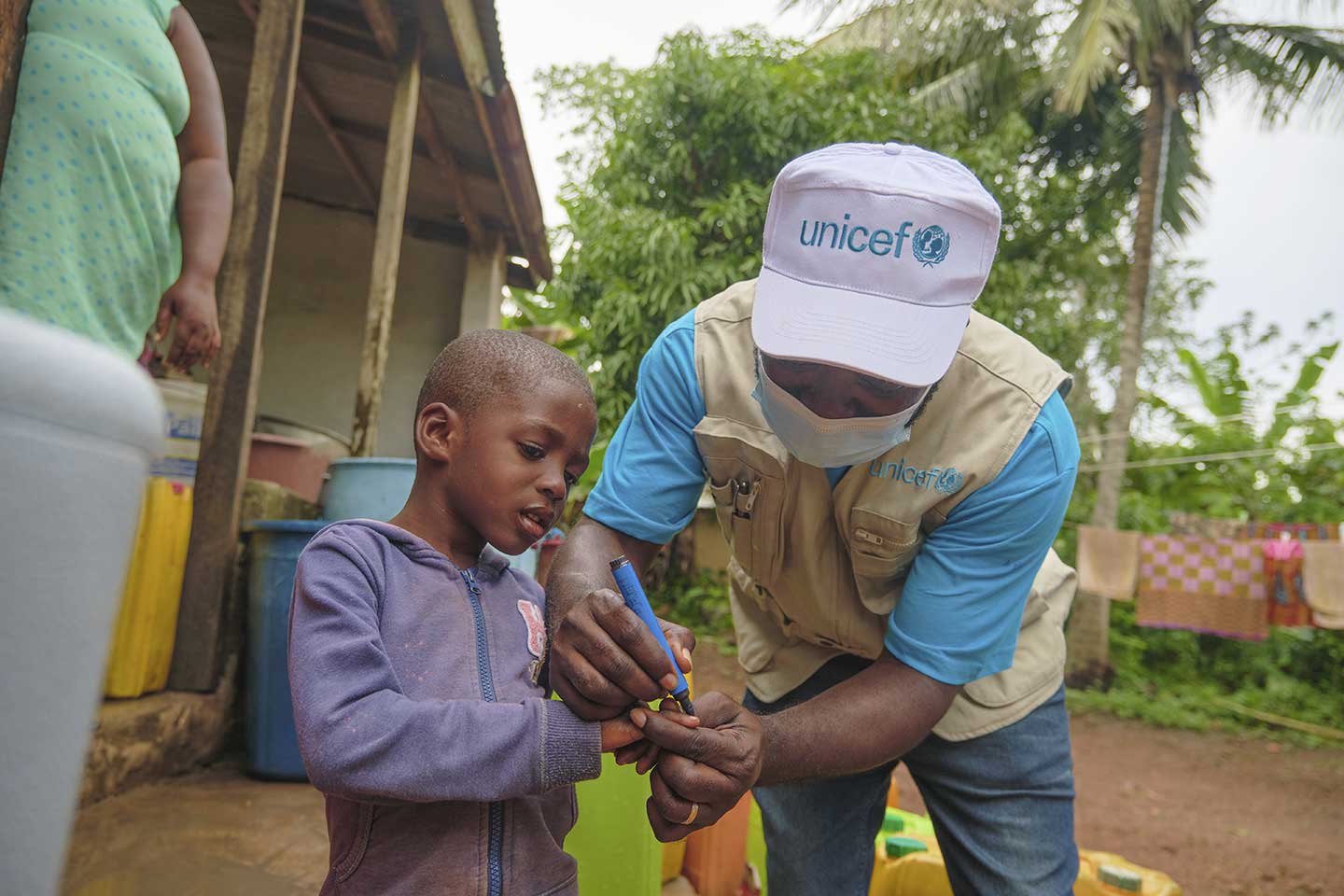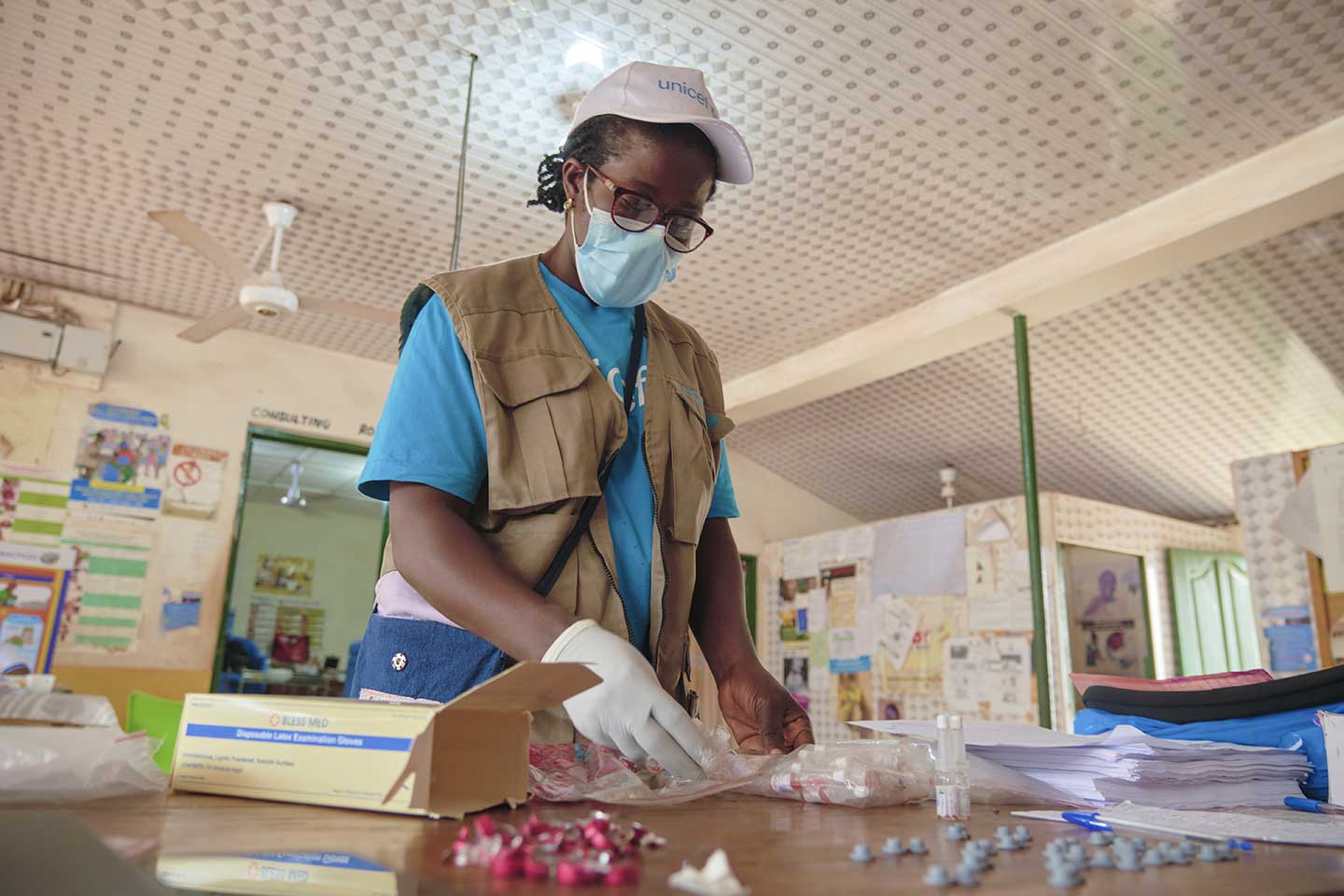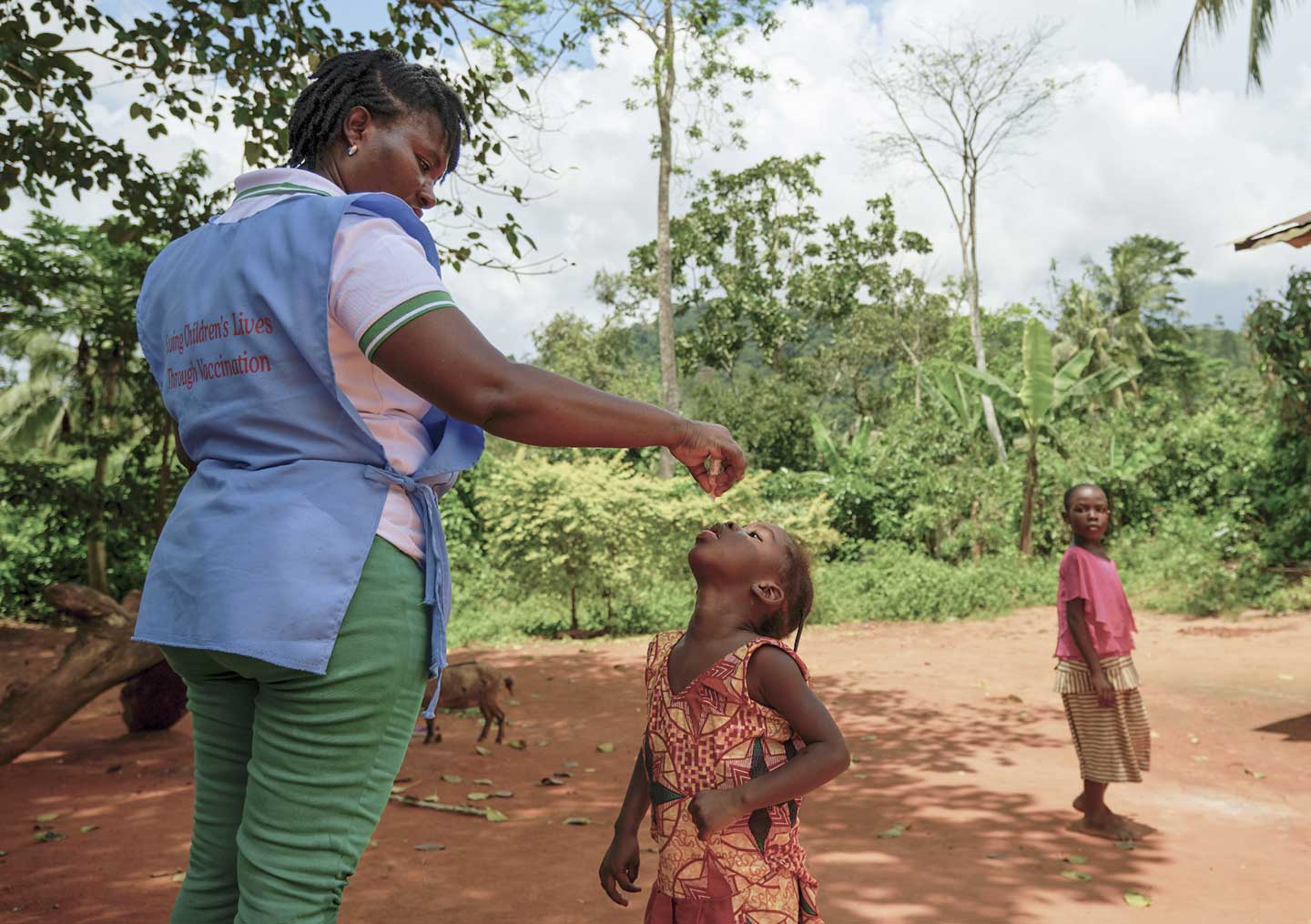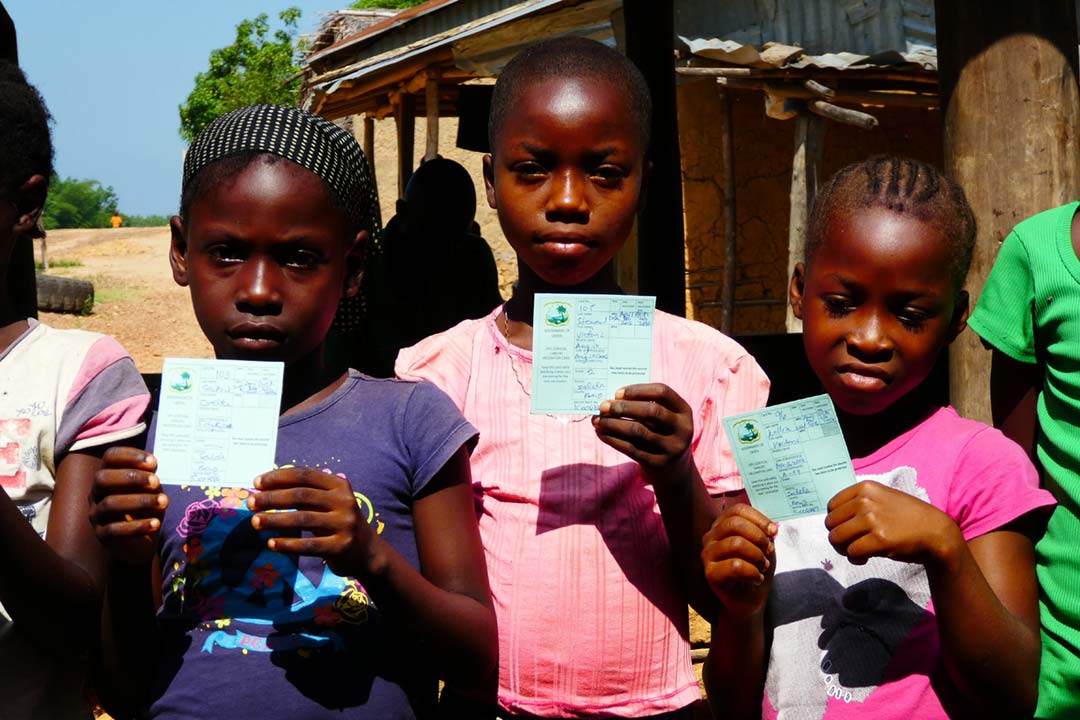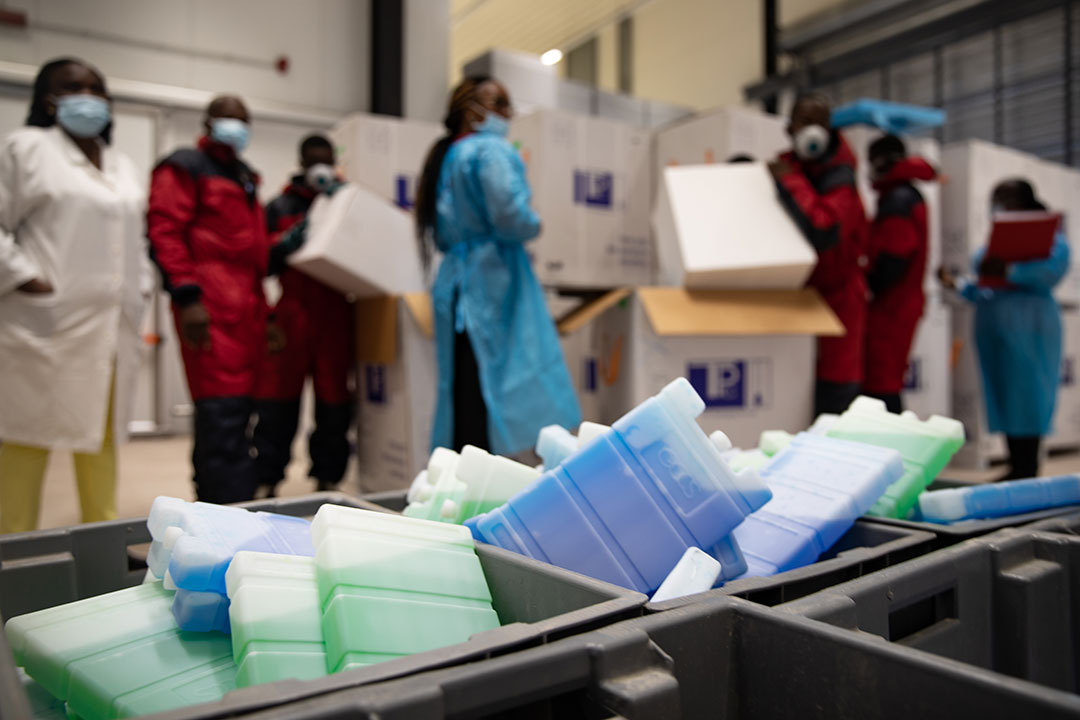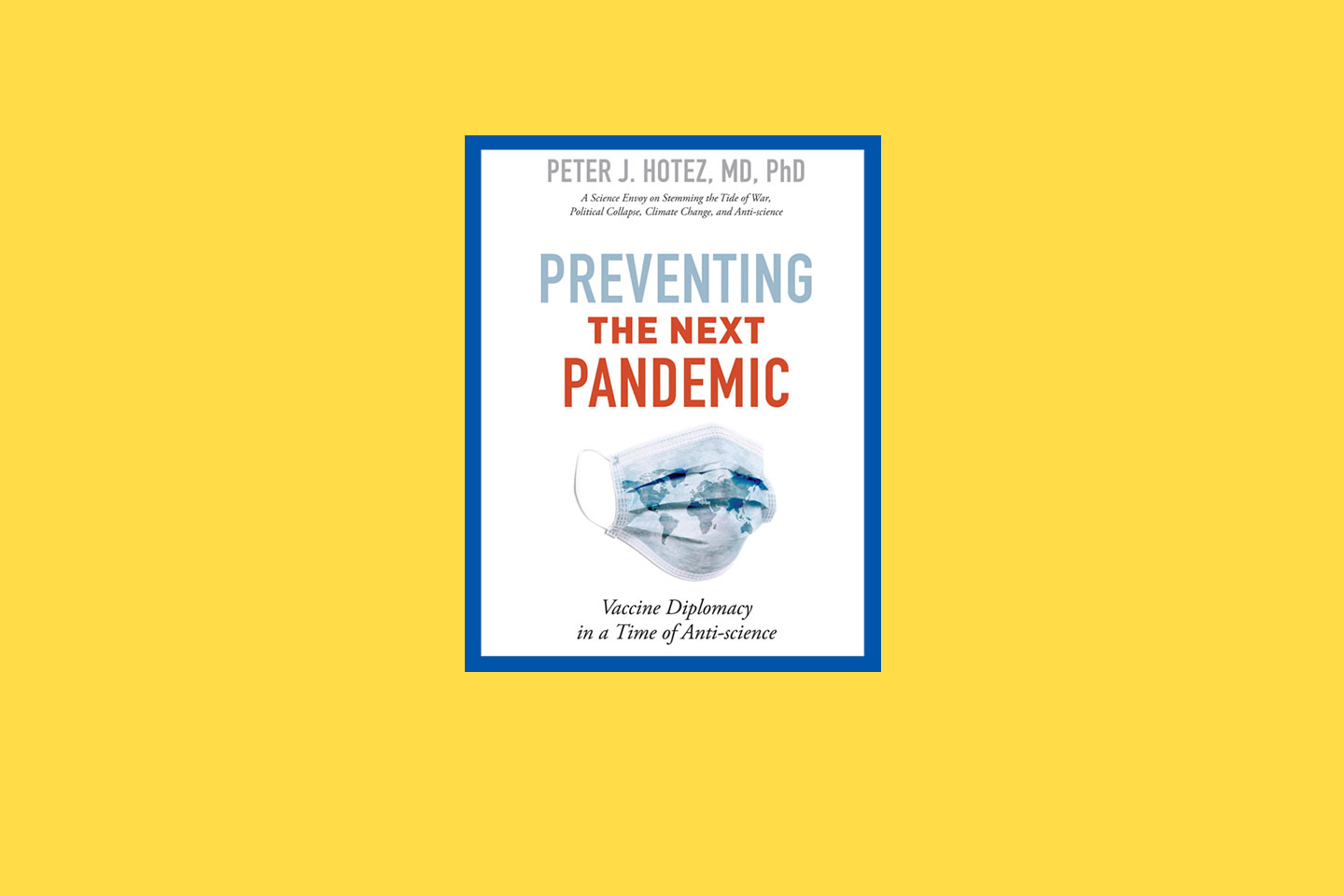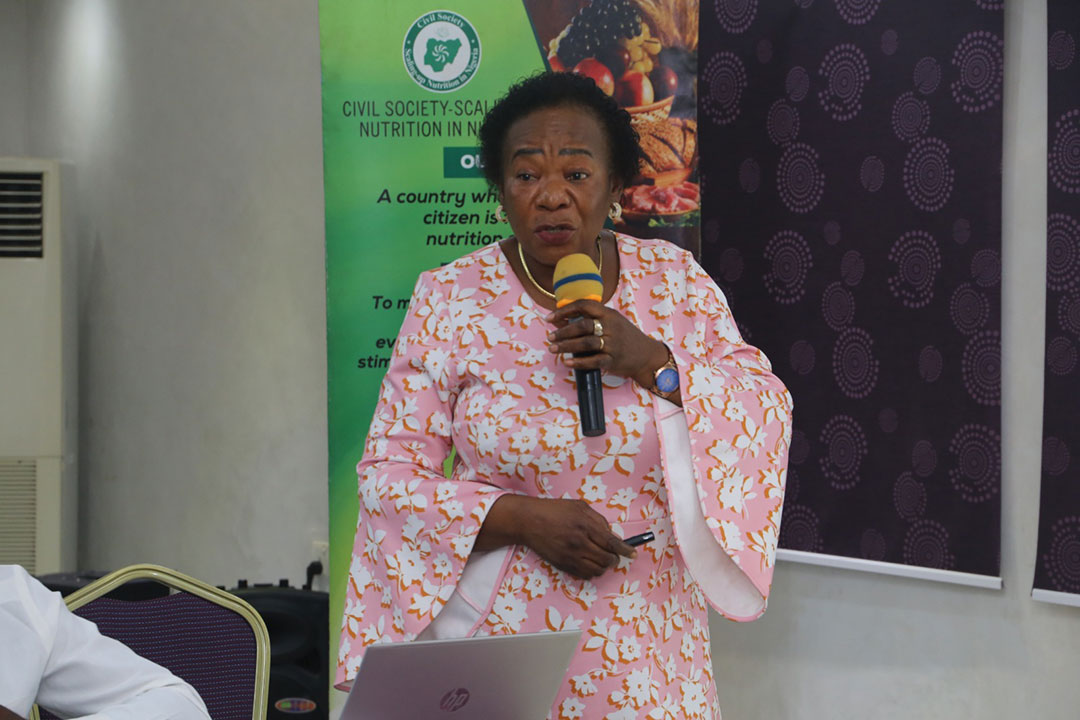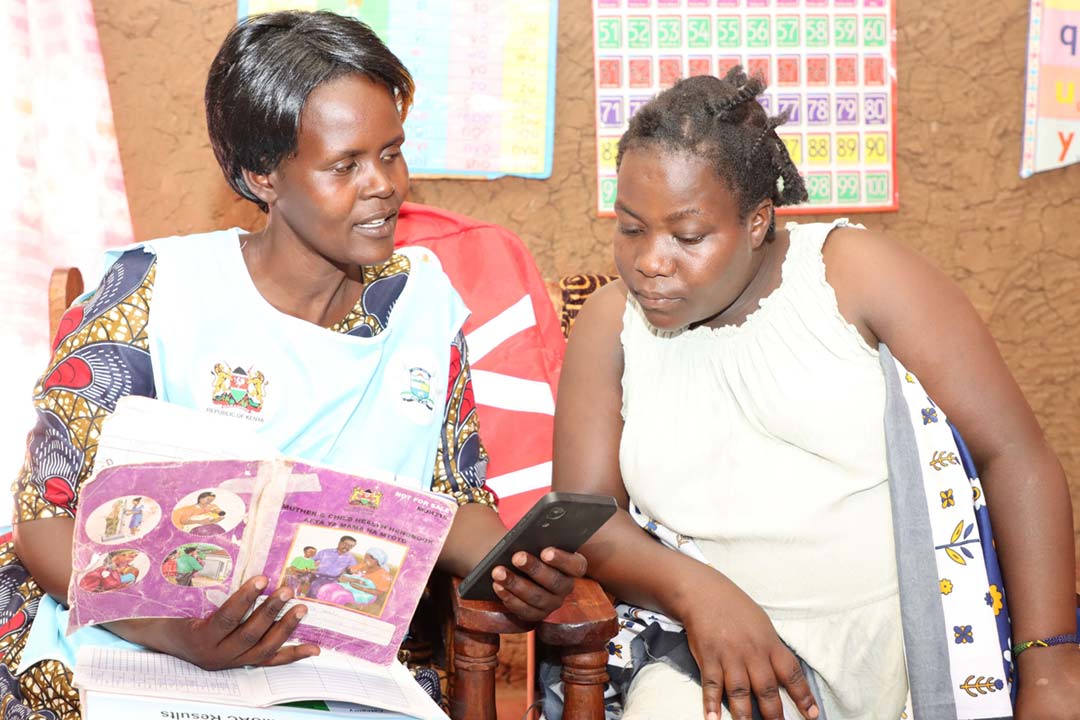Ghana launches polio campaigns despite the challenges of COVID-19
In the face of the challenges posed by the pandemic, Ghana is working to protect 4.5 million at-risk children from polio through the launch of two polio vaccination campaigns. Here’s a closer look at those efforts for World Polio Day.
- 23 October 2020
- 2 min read
- by Elinore Court
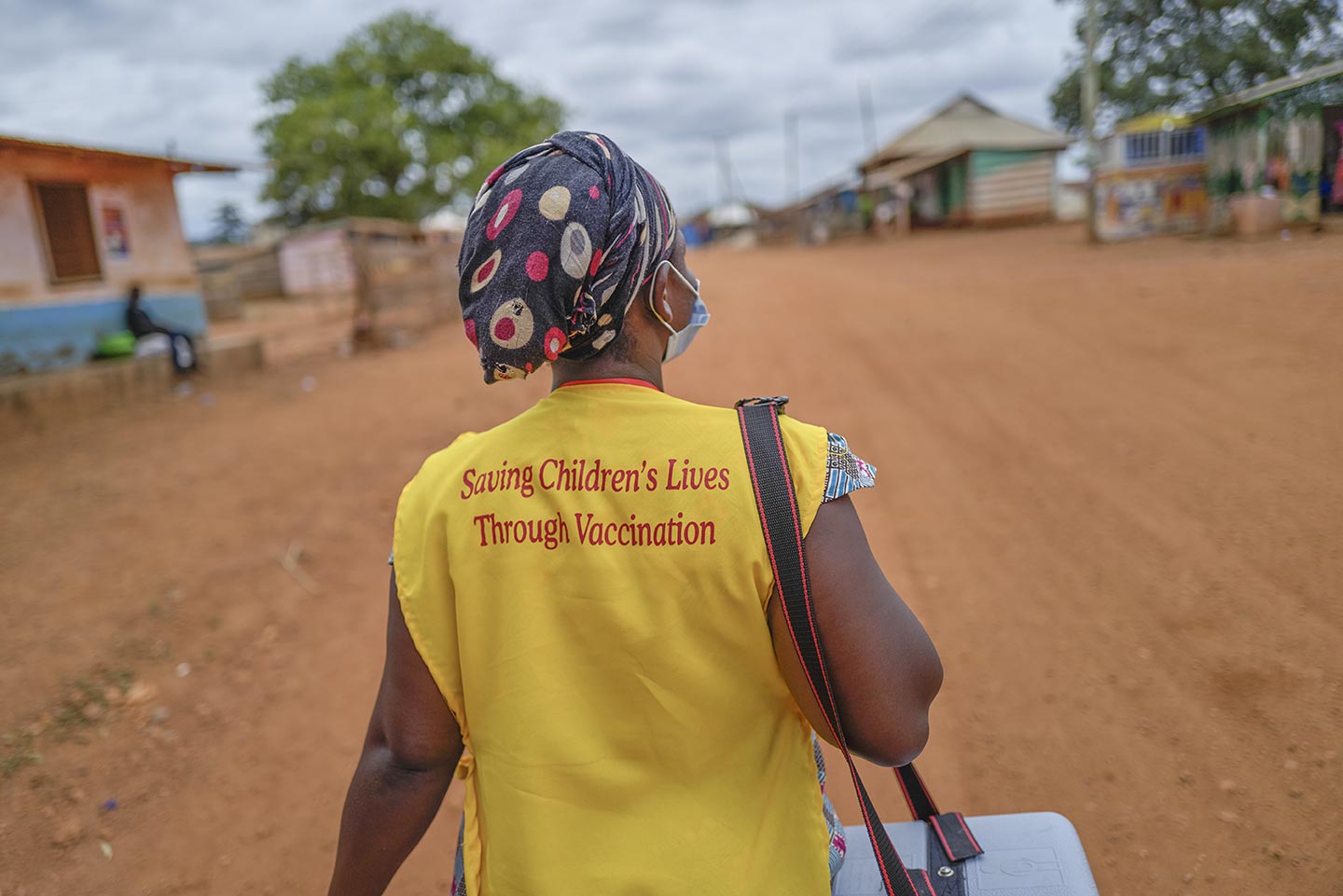
The Republic of Ghana’s decade-long polio-free status came to halt in July 2019, when laboratory investigations confirmed the existence of poliovirus in the environment and later in a young girl in the Chereponi District in the Northern Region. To date, approximately 31 children in Ghana have been paralysed due to polio.
Beginning in August 2019, UNICEF in Ghana has been supporting the Ministry of Health and the Ghana Health Service to implement several polio vaccination campaigns to ensure that all children who have been missed are reached with life-saving vaccines.
Despite the challenges of the COVID-19 pandemic in Ghana, the Health Promotion Department of the Ghana Health Service, the World Health Organization and UNICEF in Ghana embarked on two rounds of vaccination campaigns to combat polio. Targeting more than 4.5 million children, these campaigns took place from 10-13 September (Round 1) and 8-11 October (Round 2).
UNICEF’s support has been crucial in these areas:
- Social mobilisation – reaching community members with information through house-to-house visits and SMS to raise awareness among parents and caregivers of the campaign, of the existence of poliovirus, of the importance of preventing the diseases through vaccination, of keeping the environment clean, and of practicing good hygiene.
- Vaccine management – working with partners to monitor vaccine storage capacity, reduce wastage, forecast vaccine requirements and prevent breakdowns in the supply chain.
- Communication – Through its social media channels (Facebook, Twitter and Instagram) and traditional media (print, radio and television), UNICEF has been educating the general public with key messages on preventing polio, campaign dates and partners. Messages have been designed to address rumors on the safety of vaccines.
In August 2020, Gavi supported the Ghana Health Service by providing 2,343 vaccine fridges, which have been distributed across various health centers in the country – serving as a significant component in vaccine storage during the Rounds 1 & 2 campaigns.
See their journey
More from Elinore Court
Recommended for you
